#tell all interview with that warner bros employee WHEN
Explore tagged Tumblr posts
Photo
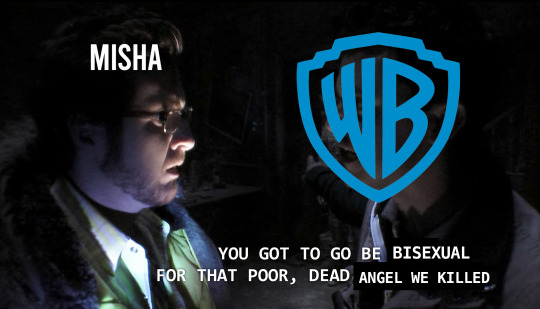
just heard the news
#tell all interview with that warner bros employee WHEN#bisexual misha gate strikes again#spn#misha collins
14K notes
·
View notes
Text
Working with Disney
For today’s assignment I had to pick two people who worked with Walt Disney and write about them, and so today I chose Walter Lantz and Xavier (X) Atencio. So let’s begin!).
Walter Lantz was born on April 27, 1900 in New Rochelle, New York. He started his animation career at sixteen years old working for William Randolph Hearst at “New York American, William Randolph Hearst’s”, newspaper company that wanted to create cartoons from popular Comics strips. He was just simple office boy where he had to wash brushes for Winsor McCay. Since then company was closed and he moved to Universal Studios as a gag writer for Oswald the Lucky Rabbit in 1927 and then in 1935 he was put in charge as a producer for the show. He distributed for the show many good things such as introducing new characters for the series including Andy panda and audience favorite Woody Woodpecker


He’s studio worked on shorter projects longer than any other studio before while they all increased their duration to grab viewers attention as long as possible. But in 1972 he had to stop due to shrinking revenues. In 1979 he received special Oscar for his special achievements and in 1994 he passed away.
He never actually worked for Disney, but rather for his opponents Universal Studio. But he was in friendly terms with Disney since both of them were in the association, the Animated Cartoon Association made of Leon Schlesinger of Warner Bros, Fred Quimby of MGM and Walt Disney. They were always cooperating and he said that in was very friendly group, for some people hearing that is something they would never believe in because everyone would rather imagine cutthroat type of relationship between big companies. But Walter Lantz said that he was in touch with Disney, if one of his employees thought about going to Disney instead, he would call Disney himself and tell about his employ that wants to work for him, Disney will ask how much Salter paying him, he would answer and then Disney would say that he won’t pay him more than Lantz already does.
I’m glad than I picked Walter Lantz for my blog because reading his interview with Don Peri definitely made me smile, this guy is very wholesome and nice guy. I picked him because I thought that his name is funny since Lantz part reminds me of name Lancelot. And I was even amazed when I found that he got an Oscar because back then really talented people were getting Oscar, and looking at his achievements, I can say that this man is really talented and hardworking man.

Second man that I want to talk about is Xavier (X) Atencio
So, Xavier Atencio was born on September 4,1919 in Walsenburg, Colorado. At the age of 18 he moved to Los Angeles as a student of Chouinard Art Institute and year later he began his career in Walt Disney Studio as an inbetweener on Pinocchio. Then he became assistant to Wolfgang Reitherman on Fantasia and Dumbo. After that he was in rolled into U.S. Army for WW2. After the war he returned to Disney and worked on small projects like Toot, Whistle and so on. His big projects he worked on were Jack and Old Mac in 1956 and then Noah’s Ark in 1959.


In 1962 he worked on A Symposium on Popular Songs as an instrumental in creating along side with Bill Justice. This duet also created the Special effects for Mary Poppins where the nursery magically tied up. Xavier shortly moved to WED in 1956 and worked on attractions there. His notable works are lyrics for Yo Ho for the Pirates of the Caribbean and Grim Grinning Ghost for Hunted Mansion. After his Retirement in 1984 he was labeled as a Disney Legend in 1996.

In his interview with Don Peri he was asked how did happened that he went to work for Disney.
He said that before that he was unrolled into Charles Mintz Studio because his uncle was a worker there. But he didn’t have enough experience with animations so they sent him to Chouinard Institute which had a preanimation. After the graduation his professors were collecting portfolio for Disney. At first he rejected offer, because he was committed for Mintz at first. But after the while he gave a shot and then they accepted him.
So, my thoughts on this man that he was pretty much an essential figure in Disney. If he wasn’t there I guess we can’t tell for sure how some works would turned out.
That’s it for now, thank you for your attention.
0 notes
Text
True story behind The Conjuring 3 – inside Arne Cheyenne Johnson’s “the devil made me do it” court case
The latest instalment in The Conjuring franchise once again has its roots in a real-life case.

By Patrick Cremona, Radio Times. UK.
Published: Friday, 21st May 2021 at 2:56 pm
The Conjuring 3 takes its title from a real-life court case that dates back to the 1980s. The Conjuring: The Devil Made Me Do It takes a look at the case and the Warrens’ involvement in the case that originated the phrase “the devil made me do it”.
Patrick Wilson and Vera Farmiga return as paranormal investigators Ed and Lorraine Warren for the next instalment in The Conjuring horror franchise, with the new movie heading to UK cinemas on 28th May 2021.
As with the previous movies in the franchise, The Conjuring 3 is taken from a real case file with reported connections to the supernatural. Previously we’ve seen spin-off movies focused on the Annabelle doll, also inspired by the Warrens who keep it in their occult museum.
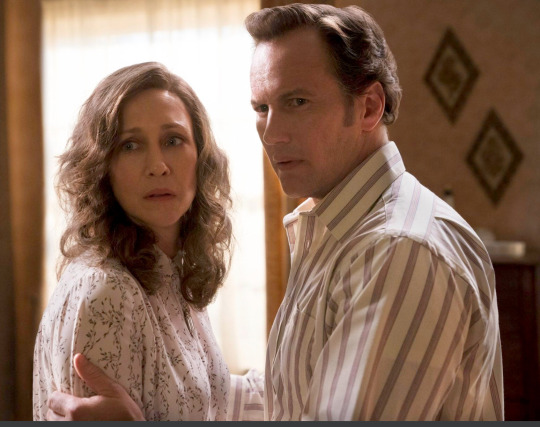
Vera Farmiga and Patrick Wilson as Lorraine and Ed Warren. Warner Bros Pictures.
The case in question this time around is the trial of Arne Cheyenne Johnson, a man who was convicted of manslaughter in Connecticut in 1981 – becoming the first person to have claimed a defence of demonic possession during a murder trial.
The Conjuring: The Devil Made Me Do It true story
The Conjuring 3 is inspired by the trial of 19-year-old Arne Cheyenne Johnson, who was charged with murdering his landlord Alan Bono in February 1981. During the trial, the defendant gained infamy for becoming the first person to claim a defence of demonic possession in a United States court – although perhaps unsurprisingly this version of events was not accepted by the judge.
His defence rested on testimony given by the family of his fiancée, Debbie Glatzel. Debbie’s 11-year-old brother had reportedly been the subject of demonic possession in the months prior to the murder, with his parents having grown increasingly worried by a number of unexplained and ominous events.
The story really starts in July 1980, when the 11-year-old David Glatzel was helping Johnson clean up a Connecticut rental property he was prepping to move so he could move in.
While there David claimed to have come across a “burnt and black-looking” old man who he claims pushed him into a waterbed saying he would bring them harm if they moved into the house.
When David returned home he continued to see the old man. He described him as having a white beard, wearing jeans and a flannel shirt. David claimed the man’s skin was charred as if he’d been burnt too. The young boy experienced night terrors and woke up with bruises and scratches on his body. He’d wake screaming and tell his parents he’d seen the sunken features of the old man “like an animal”, with horns, pointy hears and jagged teeth (via People). (The Conjuring 3 demon appears to have gone a different route, with early photos showing a white masked man wearing a striped red long coat.)
The family said they also had heard unexplained noises coming from their attic.
In trying to get to the bottom of the issue they had called in Ed and Lorraine Warren – who by this point were already well-known paranormal experts – to diagnose and cure their son.
Ed Warren said he heard banging and growling sounds coming from their basement, and that he also say a rocking chair move on its own. Speaking to paranormal researcher Tony Spera, Ed claimed David’s toy dinosaur also walked on its own towards the family. He also said a deep voice spoke to them saying: “Beware, you’re all going to die.”
Lorraine also claimed she saw a black mist appear next to David while her husband interviewed him. “While Ed interviewed the boy, I saw a black, misty form next to him, which told me we were dealing with something of a negative nature. Soon the child was complaining that invisible hands were choking him—and there were red marks on him. He said that he had the feeling of being hit,” she told People magazine.
David’s mother Judy had previously claimed it was a ghost, but the Warrens rejected this idea saying it was an indicator of a demon.
Lorraine also claimed she saw David being choked by invisible hands and he told her “he had the feeling he was being hit”. She told People that she could see red marks afterwards and she heard him growl and hiss. Lorraine also claimed he spoke in unrecognisable voices, that he recited passages of the Bible as well as Paradise Lost. Debbie Glatzel also claimed he spit, bit, kicked and swore at her and he flopped around “head to toe like a ragdoll”.
She also told the Chippewa Herald Telegram that “he manifested. Just a face on the wall. High cheekbones. A narrow chin. A thin nose. Big black eyes hidden in dark holes. He showed his teeth.”
Ed Warren also told The Washington Post: “Right away, I knew there was something to this. I felt like a good fisherman when he knows there’s something on the line.” He added that he thought there were 43 demons inside the boy, and David named them all.
David Glatzel’s exorcism
In the movie, Father Gordon (Steve Coulter) blesses the home. The priest’s name was changed for the movie, but a Roman Catholic priest did visit the home to bless it.
After continued efforts from the Warrens, the Glatzels, and multiple priests (including Rev Francis E.Virgulak) a formal exorcism took place, with witnesses claiming that a demon fled the child’s body.
Ed Warren claimed Arne, who was present at the exorcism, shouted: “Take me on, leave my little buddy alone!”
Apparently, David showed signs of improving, but Arne started to deteriorate. TV series A Haunting covered the case in the episode Where Demons Dwell, claiming that the demon took control of Johnson’s car forcing it into a tree. While he was uninjured, he was shaken by the experience. The series also blamed a demon when Johnson fell from a tree while working.
Judy told The Washington Post she paid $75 an hour for a session with a local psychiatrist too, but it was up to church officials to set up and pay for further psychological testing (via Newsweek). David’s parents were told he was “normal” but had a “minimal learning disability”.
Alan Bono’s murder
Clearly not content with its newfound freedom, though, the story goes that the spirit then immediately took control of Johnson and it was under his control that the murder of the landlord took place several months later.
Johnson and Debbie Glatzel decided against renting the original home, and instead rented a small house near Debbie’s work. Debbie was working a dog groomer for the landlord, Alan Bono, 40, who was also the kennel manager.
Bono, who has been renamed in the movie as Bruno Sauls, lived in an apartment above the kennels.
On the day of the murder, Johnson had taken the day off work and spent the day with Debbie, 26, at the kennel. Along with some other companions, Debbie, Johnson and Bono had lunch at a local restaurant and enjoyed a few drinks, becoming drunk in the process, and when they later returned to the kennel a heated fight broke out with Bono becoming increasingly agitated.
During this argument, Bono seized Debbie’s nine-year-old cousin Mary, who had also been present, and refused to let her go – which then led Johnson to confront him and eventually stab him repeatedly with a five-inch pocket knife, all while growling like an animal. Bono suffered “four or five tremendous wounds” mainly to his chest area.
Bono died several hours later and Johnson was later arrested roughly two miles away from the murder. The murder is believed to be the first murder in Brookfield, Connecticut’s 193-year history, and the first in the 30 years since the town had police records.
The next day, Lorraine Warren immediately claimed that it was a case of demonic possession, which naturally led to much media coverage around the world.
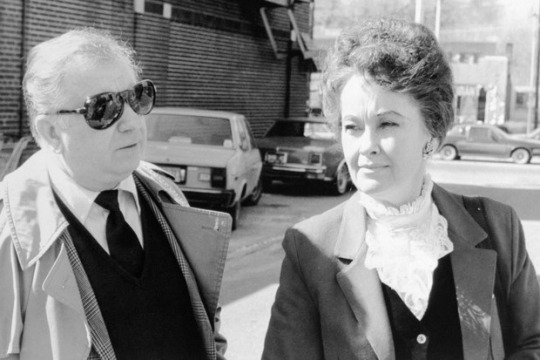
Ed and Lorraine Warren
Ed and Lorraine Warren arrive at Danbury Superior Court - Getty
Arne Johnson’s Trial
Johnson’s trial began on 28th October 1981 at Connecticut’s Superior Court in Danbury.
Johnson’s lawyer Martin Minnella attempted to enter a plea of “not guilty” due to demonic possession stating Johnson “was possessed by a demon, and it was a demon who actually manipulated his body.” It was the first known court case in US history that had attempted this defence.
Minnella, speaking about the case and the fame that followed, said: “The courts have dealt with the existence of God. Now they’re going to have to deal with the existence of the Devil.” (via the New York Times).
However, the plea of not guilty due to demonic possession was immediately thrown out by presiding judge Robert Callahan who said that it would be “irrelative and unscientific” to allow testimony on these grounds, and so despite the ensuing media attention the jury was not legally allowed to consider demonic possession.
Johnson’s defence claimed that he hadn’t been the same after Glatzel’s exorcism, and witnesses were called upon saying they saw a demon transfer from Glatzel to Johnson. Debbie Glatzel also testified that Johnson behaved similarly to Glatzel. Ed Warren claimed Johnson had made a “fatal mistake” by taunting the alleged demon.
Debbie claimed Johnson had come to Bono’s apartment to repair a stereo for him, but that Bono had been drinking red wine and the pair got into an argument about payment for the repair. She also said Johnson was in a trance when he stabbed Bono.
According to reports, in the three months Debbie and Johnson had lived next to Bono they had been friends. The police believed that Bono and Debbie’s relationship was more than boss and employee, but Debbie denied this despite the police claiming the argument was over her rather than the stereo. The Conjuring: The Devil Made Me Do It does take this angle into the story, exploring the ‘jealous lover’ plot, which was also shown in the 1983 movie The Demon Murder Case (starring Kevin Bacon).
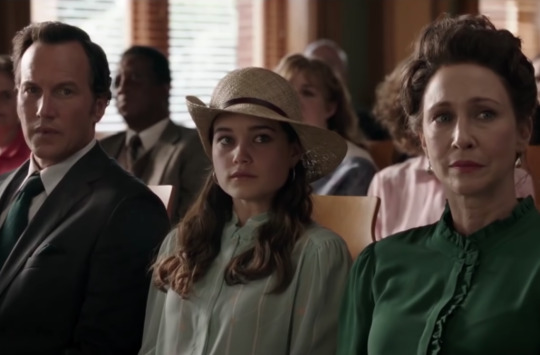
L-R Patrick Wilson (Ed Warren), Sarah Catherine Hook (Debbie Glatzel) and Vera Farmiga (Lorraine Warren) in New Line Cinema’s ‘The Conjuring: The Devil Made Me Do It.
After the jury deliberated for more than three days, Johnson was convicted of first-degree manslaughter on 24th November 1981 and was sentenced to between 10 and 20 years in prison. He was released in 1986 having only served five years of his sentence.
Even though demonic possession was not actually allowed as a legitimate defence in the trial, the case became colloquially known as “the Devil made me do it case” – hence the subtitle of this film.
Where are the Glatzels and Johnson now?
Johnson married Debbie Glatzel while he was in prison. He also got his high school diploma while inside. The pair went on to have two children.
Lorraine Warren went on to write the book The Devil in Connecticut with Gerald Brittle detailing the case, and they shared the profits from the sales with the Glatzel family. David’s brother Carl Glatzel did speak out against the book when it was republished in 2006 saying it was a “complete lie” and that “the Warrens concocted a phoney story about demons in an attempt to get rich and famous at our expense.”
Carl claimed the Warrens told the family they’d be millionaires – it was later confirmed they were paid $2,000. Carl also says David was suffering with his mental health at the time, but he recovered. In 2007, David and Carl filed a lawsuit against Brittle and the Warrens for unspecified financial damages. They sued the authors and publishers for violating their privacy, libel and “intentional infliction of emotional distress.”
Brittle claims his book is based on fact and he interviewed the Glatzel family for more than 100 hours, which he has video of. Lorraine Warren also said the six priests who performed exorcisms on Glatzel agreed that he was possessed.
Debbie Glatzel and Arne Johnson have always backed the account of the possession, but David’s father denies his son was possessed.
How the movie tackles such a complicated case and how closely they stick to the real life events remains to be seen.
The Conjuring: The Devil Made Me Do It is released in cinemas on 4th June, 2021 on HBO Max and 28th May in the UK.
#radio times#arne johnson true story#the conjuring the devil made me do it#patrick wilson#patrickwilson#actor#pwilzfan73#movies#edwarren#verafarmiga#lorrainewarren#vera farmiga#sarah catherine hook#arne johnson
151 notes
·
View notes
Text
May 7, 2021: TRON (1982)
Starting to leave lo-fi sci-fi with this one.

Can I just say, I am VERY excited for this one. Mostly because it’s hard to get more ‘80s than this movie, specifically in terms of computers. I’ll explain. Y’know Jurassic Park? Yeah, the same movie I’ve brought up far, FAR too many times this month. Is...is that my favorite sci-fi movie? Shit, it might be? I’ve read the books, I’ve seen the movie COUNTLESS times...I’m pretty sure it is! Huh. Go figure. Anyway, where was I?
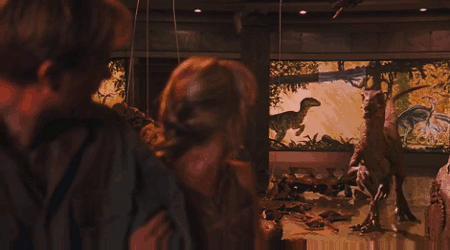
Oh, right! Remember the most irritating character in the movie? This is, in my opinion, older sister Lex Murphy. In the book, for the record, she’s a VERY different character. She’s the youngest sibling amongst the two, and she’s a sports nerd who hates dinosaurs. And she’s also the most annoying character in the book, so at least they kept that consistent. However, you may be saying to yourself: “Jesus, this dude really loves Jurassic Park. Even in the intro for Tron, he’s talking about it. Why the hell does he keep bringing it up?”
Well, allow me to explain. When I was 9 years old, I was super into two things: dinosaurs and reading. You may think that I wasn’t very popular in school as a result. And the truth won’t surprise you. Anyway, on January 3rd, 2001, it was a cold morning in the supermarket when

...OK, lemme get to the point. IT’S A UNIX SYSTEM!
See, this moment when Lex hacks into the computer to reactivate the locks (a task given to Tim in the book, but whatever) does two things. One, it makes Lex relevant in a film and story where she’s almost entirely unneeded. And two, it established something in the minds of movie-watchers everywhere: a completely misguided idea of what computer programming is.
And this is just one of MANY examples of Hollywood weirdly representing computers to the public. This was kind of a trend throughout the ‘80s and ‘90s, as computers were beginning to become available to the public. Examples are:

WarGames (1983), dir. John Badham

Terminator 2: Judgment Day (1991), dir. James Cameron
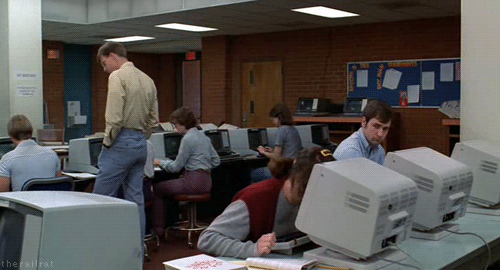
Revenge of the Nerds (1984), dir. Jeff Kanew

Weird Science (1985), dir, John Hughes

Captain America: The Winter Soldier (2014), dir. Russo Bros
That last one isn’t a great example, and it’s not even within the right time period. I just love Arnim Zola, and he NEEDS TO RETURN to the MCU. Goddamn it, I want this guy back, complete with his full robot body! COME ON FIEGE, LOOK AT THIS GUY! That last one may or may not be my fanart for the character with my own design NEVERTHEGODDAMNLESS!
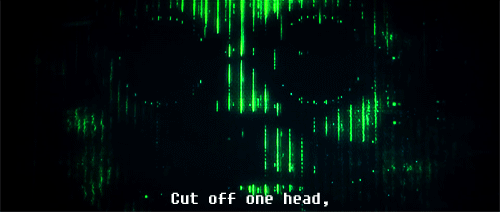
Look, all you gotta do is connect the various machinations of Arnim Zola to the foundations of AIM, which is easy given their link in the comics. Zola and his fellow Paperclip scientists helped fund Aldrich Killian’s AIM, and the project to give Zola his sick-ass robot body eventually wound up being a part of the project that would create the hovering robotic chair used by this guy.
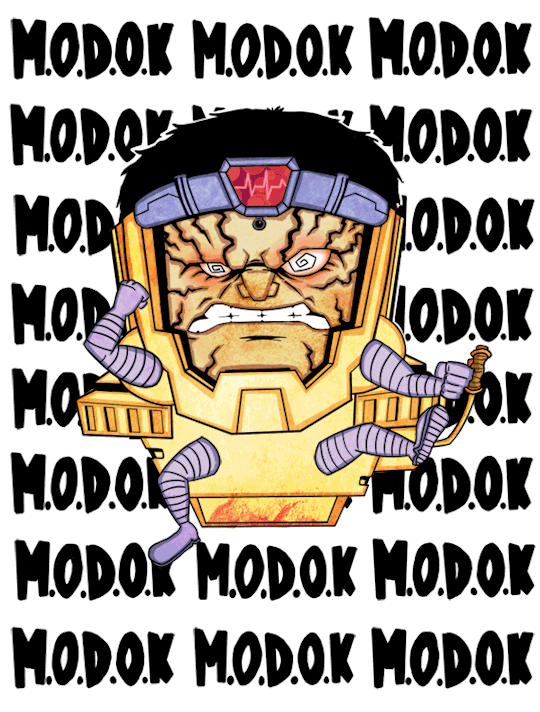
THIS IS ALL I’VE EVER WANTED PLEASE
...Ahem.
Anyway, the weird-ass ways that Hollywood’s represented computers, hacking, and all other associated things can be traced back to 1982, when the first film to use mostly computer generated imagery for its setting was created. This was, of course, Disney’s TRON. And while I haven’t seen it before...I’ve see its sequel in theaters?
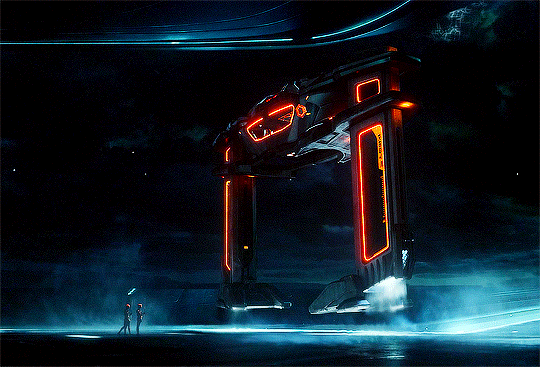
On a related note, Tron Legacy might be a mediocre film with a mediocre soundtrack, but GODDAMN DO IT LOVE THE FUCKING VISUALS. It’s genuinely my favorite aesthetic. That whole “outlined in light” thing? Goooooooh, BABY, how I love it.
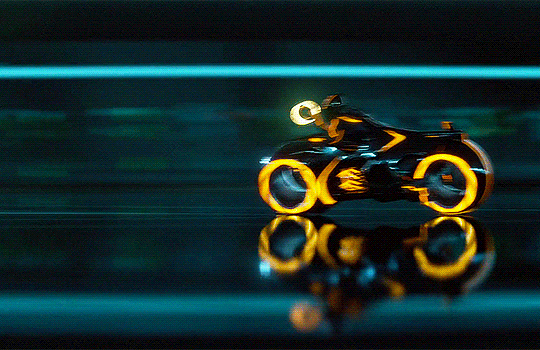
Style over substance, but OH THE FUCKING STYLE
Anyway, despite that, I’m looking forward to seeing where the whole thing came from. I dig that style, too. Is there a name for those aesthetics? Let me know, so I can devote my life to it forever. Anyway, shall we get started?
SPOILERS AHEAD!!!
Recap
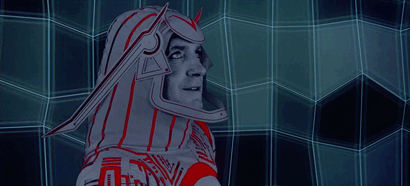
So, we start this movie off with a BANG, jumping into an arcade where two kids are playing none other than Lightcycle, and jumping into said Lightcycles to meet one of the drivers, Sark (David Warner). A sadistic program, he takes great pleasure in executing programs in Lightcycle races.
One of these programs, in fact, is being brought into imprisonment now, to be set against Sark in a race. The program, Crom (Peter Jurasik), speaks with fellow prisoner Ram (Dan Shor), where we get some idea of the lore of this place. Many programs believe in “the Users”, god-like figures who they believe created them and tell them what to do. However, the mysterious Master Control Program is rounding up the programs that believe in Users, taking over their functions or executing them. Diggin’ the lore so far.

In the real world, we meet Kevin Flynn (Jeff Bridges), a computer programmer commanding his own program, Clu (also Bridges), and...look, I’m not sure what they’re doing, but OHHH. IT’S A UNIX SYSTEM, BABY. The beautiful bullshit that this movie uses to denote computer activity and programming, it’s...MMMMMMMMMCHEF’SKISS, it’s so FUCKING GOOD!
Anyway, Clu’s apparently being sent to find some information, but he’s caught by Master Control. Jeff Bridges shows off some pretty over-the-top acting, but it’s charming as hell. Clu’s interrogated by Master Control Program (also Warner), and killed, or “derezzed”. This frustrates Flynn, but why?

Well, we get a clue from MCPs concentration with Ed Dillinger (David Warner), who arrives at his office in the COOLEST FUCKING HELICOPTER I HAVE EVER SEEN. I will never make enough money to have this helicopter, but maybe one day I can do it to a car, holy shit. Anyway, Dillinger lands and enters the ENCOM building, where he speaks with his computer table, which contains MCP.
Is this a thing with computer programmers? Do they, like, physically talk to their programs, and the programs talk back? Is this a thing that happens? Are the conversations interesting? Are IT people literally computer-whisperers? I gotta talk to my friends in computer sciences and IT about this.
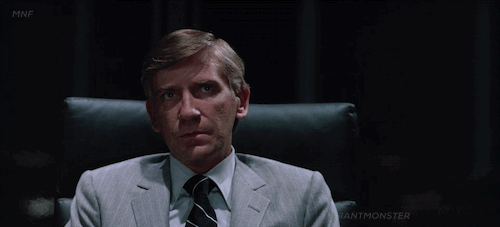
Apparently, Flynn’s been snooping around their servers for a specific file, and they’re trying to stop him from getting that file. Meanwhile, in an office in the building, a man named Alan Bradley (Bruce Boxleitner) is blocked out of the system in an attempt to flush out Flynn’s location. Bradley’s summoned to the office for what seems like a routine interview, but is actually more of an investigation. Doesn’t go anywhere.
On a side note, by the way, it would appear that MCP is somewhat in control of Dillinger. Although, how and why is unknown. In any case, he’s attempting to amass power. Additionally, the fact that he’s directly speaking to one of the Users is...interesting. And on a second side note, Bradley is preparing something, a security program called “Tron”. That might come up later.

MEANWHILE, elsewhere in the building, a group of scientists are conducting an experiment to digitize solid matter and transport it into computers. It succeeds with an orange, much to their delight and celebration. One of these scientists is Lora Baines (Cindy Morgan), Flynn’s ex-girlfriend and Alan’s current girlfriend. They go to the arcade to reconvene with Flynn, much to Alan’s irritation.
Flynn not only owns the place, he’s also a game whiz, brilliant computer programmer, and recently fired ex-employee of ENCOM. He’s also been sneaking into the ENCOM system, and he details exactly why he’s moving against them. While working for ENCOM, he had started writing programs for some very complex video games, which could’ve have made him quite a bit of money. But Dillinger stole his files, and uses it to climb up the ranks to Senior Executive of ENCOM, while Flynn lounges in relative poverty. He’s planning on getting into the system to get evidence of Dillinger’s wrongdoing.

The trio plots to take down Dillinger and get the evidence together, breaking into ENCOM that night. Meanwhile, Dillinger’s meeting with Walter Gibbs (Barnard Hughes), a co-founder of the company, and one of the other scientists who made the digitizing machine. Dillinger says YOUR TIME IS OVER OLD MAN, and brushes off his concerns about he’s handing the company.
He’s not the only one with issues, as MCP decides to take over FOR Dillinger. Apparently, Dillinger’s talents are stealing data and creating Cybernet/HAL 9000. Good job, buddy. But that may end, when Alan goes to finish and install his program, Tron, which will hopefully take MCP down. Meanwhile, Lora and Flynn go to the basement with the digitizing machine. At the computer terminal, MCP decides to stop Flynn by...well, you know where this is headed.
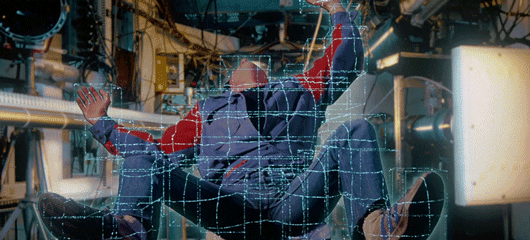
Yup! Flynn’s brought into the computer by Lora’s machine, and is digitized and put into the game grid. And since we’ll be spending a lot of time there, I think I need to acknowledge something: I really love how this movie looks. The CGI is rudimentary, but it’s used surprisingly well. Consider that this is also made in an era where this is the kind of imagery that computers could literally generate at the time, and you’ve got a pretty great movie in-context.
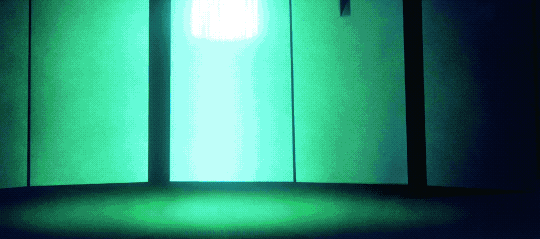
Flynn, now in those spiffy program duds, is sent by the MCP to compete in the Game Grid, under Sark’s supervision and tutelage. He’s thrown into the brig with the other imprisoned programs, where he learns more about this world. Once brought into the throes of the Game Grid, he’s told that those who believe in the Users are to be trained poorly, ensuring their inevitable death. Meanwhile, those who renounce their belief will be spared. And of all the programs who still believe in the Users, there is none quite as powerful...as Tron (Bruce Boxleitner again).

We see Tron’s badass skills in Ultimate Frisbee. And OK, it’s not Ultimate Frisbee, but you throw discs that contain all of your essence and all of the things you’ve learned in your time there. You basically pour your entire essence and being into the disc as you throw it. So, really, it is Ultimate Frisbee, according to that one dude who’s REALLY into Ultimate Frisbee.
Flynn is commanded to play one of these games, and he winds fairly easily. However, when he defeats his opponent, he’s almost about to die. However, Flynn refuses to finish him off, leading Sark to do so instead. And Sark is tempted to kill Flynn as well, but he holds off at the last moment.

Flynn finally gets to meet Tron, where he feigns being a program that knows of his User, Alan. Of course, Tron looks exactly like Alan, which is why Flynn blurts out his name. But as they’re discussing this, Flynn, Tron, and fellow prisoner Ram are sent to compete in the Lightcycles. And, yes, I’m now looking for a game like this on my phone, because GODDAMN to I love Lightcycles. Can’t WAIT for the Disney World ride, oh my GOOOOD.

So, our guys get in the Lightcycles, and they outmaneuver Sark’s guys. They’re actually able to escape the arena and the Game Grid, making it outside the citadel. They encounter a, uh, bitstream, and soak up some energy before moving on. On the way, though, they’re nearly killed by Sark’s guys in tanks, and Tron is separated from Flynn an the unconscious Ram.
Flynn and Ram finds a place to rest and hide, and Flynn discovers that, as a User, he actually has the ability to somewhat manipulate the reality within the computer, and he makes a version of MCPs ships, the Recognizers, which resemble the villains in Flynn’s game that Dillinger stole. Now realizing that Flynn is a user, Ram asks him to help Tron, before dying and disappearing into pure code. Whoof.

Tron, meanwhile, ends up finding an input/output program named Yori (Cindy Morgan), who helps him in his escape. She takes him through the city, where we see some interesting designs for control programs, almost like a Hunger Games Panem sort of deal.
Flynn has trouble driving his ship, as he meets a “bit”, a small bit of data that only answers in yes or no. He, too, ends up in the city, and you start to notice that this film has a really heavy influence in our cyberpunk concepts and fashions today. Honestly, I really dig this whole thing. Kevin uses his programming powers to disguise himself as one of Sark’s guards, while Yori and Tron find their way through the main citadel of the guards.
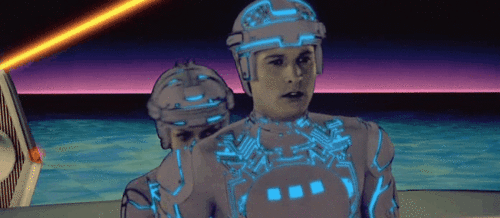
They make their way through to the access tower, where they ask the program Dumont (Barnard Hughes again) to let them access the interface that will allow them to speak with the Users, specifically Alan. Reluctantly, Dumont agrees to let Tron through, where he goes to the access port. Which, for the record, looks awesome. He goes to speak with Alan, and he does that one pose. Y’know, the famous Tron pose that’s on the poster?
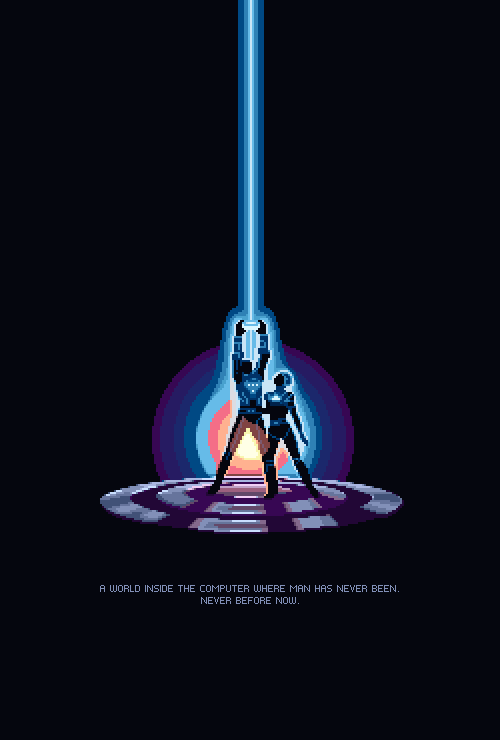
Yeah, that’s the good stuff. Anyway, he gets information written onto his disc that’ll allow him to kill MCP. Neat. And unfortunately, that’s exactly when Sark and his guys show up, taking Dumont away as Tron and Yori escape. Yori gets them onto a Solar Sailer, a device that will transport them to the central computer. Tron fends off some of Sark’s guys with video game noise kicks, and the Solar Sailer arrives to take them away.
Sark chases after them, but the pair manage to outrun his very cool-looking ship. MCP threatens to destroy Sark for his failure, but he promises that he’ll be able to get them. On the ship, Tron looks down at the side to see Flynn hanging on. Turns out that he was one of the guards that attacked the two. Tron pulls him up onto the ship, and Flynn reveals that he is, in fact, a user. He also reveals that Users aren’t exactly the gods that programs believe them to be.
Anyway, how’s Dumont doing?

Ah.
Well, the Recognizers find Tron, Yori, and Flynn, and chase after them on the light beam the Solar Sailer is on. However, with his User powers, Flynn manages to get the Sailer onto a different beam, while pulses on the original beam destroy the Recognizers.
Doesn’t end up mattering much, though, as Sark finally catches up and intercepts the group. The Solar Sailer is destroyed, and Yori and Flynn are thrown in the brig with Dumont, who’s still alive! Can’t say quite as much for Tron, apparently. But, again, I can only assume that Ton is still alive. We’ll see, though. Sark denies Flynn’s identity as a User for some reason (I mean, MCP told you who he was, but OK), and he sentences them all to death. Outside the ship, of course, is Tron, who’s hiding and waiting for the right time to strike. And that is when we finally see him.

Glorious. Absolutely goddamn glorious. MCP is taking the remaining programs that believe in Users, Dumont included, and incorporating them into his mass. Meanwhile, Sark has found Tron, and the two are fighting with a classic game of Ultimate Frisbee. Tron nearly defeats Sark entirely, but MCP revives him, and gives him the power to take out Tron. He grows gigantic, and it looks genuinely really convincing.
Flynn prepares to take out MCP once and for all, and kisses Yori just beforehand, which is weird as shit. He jumps into the program, and controls it just long enough for Tron to throw his disc at it and land the finishing blow. And with that, MCP is ended, and the threat of take over is gone! The I/O towers light up, and the Video Warriors have won! Don’t ask me what that means, I study birds.

And with ALL OF THAT DONE, Flynn gets the proof he needs from a print-out that, to be honest, I feel like he could’ve just typed up himself. It doesn’t look like that much. But, still, MCP is gone, Dillinger’s screwed, and Flynn now gets a cool-looking helicopter of his own, as the new CEO of ENCOM. And from there, he will become a deadbeat dad that abandons his kid to live in computers forever. Or something like that, it’s been a while since I’ve seen Tron Legacy.

And that’s Tron, a goofy movie of its time, but one that’s a lot of fun all the same. And with some effects that, to be honest...I actually really liked! But more on that...IN THE REVIEW! See you there!
#tron#tron 1982#steven lisberger#jeff bridges#bruce boxleitner#david warner#cindy morgan#barnard hughes#science fiction may#sci-fi may#user365#365 movie challenge#365 movies 365 days#365 Days 365 Movies#365 movies a year#useranimusvox#userbrittany
9 notes
·
View notes
Text
The Ellen Show, Forgiveness, Against Cancel Culture and Kevin Hart.
I’ve been watching The Ellen Show for the last 11 years, - watching this whole situation unfold has been shocking and so upsetting. I have read multiple articles from multiple sources, so that I can have the most non-bias and balanced opinion of this situation. I’m also taking everything with a pinch of salt because we all know what humans can be like.
From what I’ve read there have been numerous complaints about some of the senior staff at The Ellen Show and some complaints about Ellen DeGeneres herself. Three Executive Producers have been fired due to Warner Bros. external investigation, the Executive Producers have yet to release statements, Twitch has been promoted to Co-Executive Producer, he said that there has been nothing but “love” behind the scenes and Ellen has apologised for her behaviour and has said that season 18 will come back “stronger”. It also seems that the Producers kept Ellen in a bubble, they didn’t let staff talk to her, they didn’t let them interact with her, they made Ellen believe that everything was fine behind the scenes and when there were complaints they kept it to themselves; which is why Ellen has no idea any of this was going on.
It also seems as though Ellen didn’t have a lot of input in how the show was run behind the scenes, she trusted her Producers to the point that she became complacent and believed everything was fine. I also believe that Ellen is not a self-aware person, she genuinely didn’t know that she coming off cold or stand-offish to some people and there was no one to check Ellen when this happened. The complaints of racism (that have been reported) hold no weight in the situation, saying that its hard to tell two black people apart from each other because they look alike is not racist. it’s an observation. Also producers asking people for their “sources” isn’t a bad thing when you work on a team, you’re supposed to work together.

This is not a clean-cut / black-and-white situation - there are many factors that go into this; one of the most important being that The Ellen Show is based in California which is one of (if not the) most liberal states in the US, which means there are going to be a lot of social justice warriors and “woke” people that work for Ellen and The Ellen Show; which is why I’m taking all of this with a pinch of salt. A person can tell a joke or scare someone, different people will take it a different ways, some of them will laugh, some of the them will get offended and others will brush it off (which is what seems to have happened with Kevin Leaman). There will also be people who for whatever reason will not like working with particular people and will do whatever they have to do to get them fired or “cancelled”. Some people are also saying that Twitch was promoted because he is black, which is completely false - Twitch has been working on The Ellen Show for years, he started of a guest with SYTYCD, then turned DJ / dancer and he’s now basically co-hosting The Ellen Show and Ellen’s Game of Games. Also, of course if you fired three Producers, you need someone to replace them and Twitch is by far the best choice.
This may be very controversial but I’m going to say it anyway… the people going to the press, telling them about the situation at The Ellen Show are no better than the people they are accusing. Why? Because they knew all of this was going on for YEARS, they said NOTHING and allowed new employees to walk into a toxic work environment, which allowed the situation to get worse. If you know something is wrong and people are being treated badly, you should say something, you tell your boss and you don’t stop until you find someone who will listen to to you or you take it upon yourself to improve the situation. You don’t just walk away from the job and then run to the press.
I really do hope the accused were interviewed, I hope they had an opportunity to defend themselves and apologise for how they have treated people. I don’t believe in the Media being the Judge and the Jury. I don’t agree with cancel culture, noting good ever comes of it, we need to accept that people have done wrong, learn from it and move on. Not silence them and take away their ability to get a job or provide for themselves and their families.”, I don’t want people to loose their jobs because they offended someone with a joke. I also believe in second chances and I believe people can change if they are willing to do so. I do hope The Ellen Show comes back stronger in September, I hope things get better for the staff and I hope Ellen has a bigger responsibility / more input on what goes on behind the scenes of her show (or hires someone specifically to do that for her) and I hope this never happens again.
Edit: Everytime I don’t know what to say or explain myself, Kevin Hart sums it up perfectly “We’re letting people control and dictate the start and finish of people’s lives, and if we are in a time of finding any type of solution to the fight of equality and change, which seems to be a global fight now — a global fight of people being treated fairly, change, understanding and accepting the past, but preparing for a better future - if people [have done something] wrong, the idea of canceling those people, and ending whatever career or thing they have…If it’s just over, then what’s the teachable moment for them? What, it’s over, and then you can’t do nothing else for the rest of your life, because you made a mistake?”
Kevin Hart explains why he supports Ellen and Nick Cannon amid scandal
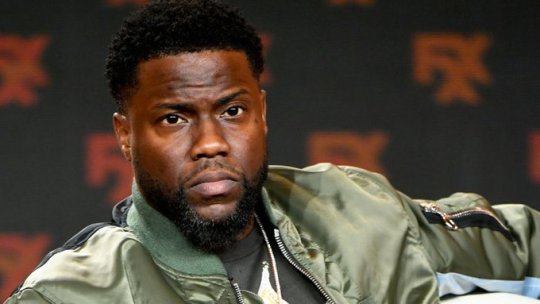
20 notes
·
View notes
Text
Wilt Dynasty
As a heads up to anyone reading this. This is a bio for a Bendy OC. A human character I’ve thought about for my Bendy sequel AU. So if you think his name seems similar to the likes of Walt Disney. That’s the point considering while yes Joey Drew you can definitely tell was inspired by both Walt Disney and Max Fleischer. Wilt is basically the parody version of Walt in the world of Bendy.
Even though I’m concerned of how people would react to this. I don’t know if I should call him a parody. Yet I did wanted to make him different in a way from Walt. But the point was to make a rival to Joey Drew even though we have a Nathan Arch in the lore. Who is in charge of Archgate Films. Which I think I should keep in mind because I was thinking of making another fake company by the name of Walter Bros. The Bendy version of Warner Bros.
Again I am concerned that I guess I’m ripping off stuff. I didn’t wanna just name sake actual animation studios. Also Disney would sue your ass if you mention their name. But I’m rambling just this was a character I’ve mentioned a couple of times. I should start writing about him.
I also was studying a bit more on Walt Disney himself so I can well be inspired. Including this documentary by American Experience. Despite I’ve read in comments some of it is not true. Such as leaving out Ub Iwerks and his idea of syncing. Whatever else it those videos I was looking at the most. To give me an idea to base Wilt off. Basically to make an anti thesis to Joey.
Including the voice to choose for this guy was hard. Yet I had just found him. Along with thinking about his name. I was trying to make it unique and I’m trying to remember correctly. But Wilt I think stuck with me and it’s kind of a reference to Wilt from Fosters Home For Imaginary Friends considering one part in his bio.
Wilt Dynasty.
Born: 1909.
Died: 1966.
Occupation: Founder of the Wilt Dynasty Company and Wilt Dynasty Studios. Along with other roles.
Voiced By: Mark Fischbach.
Fate: You’ll find out as you read this…it’s not pretty.
Story: Wilt Dynasty was a young man who became one of the pioneers of the American Animation Industry. An American entrepreneur, animator, writer, voice actor, and other things.
His studio was one of the few that was responsible for molding modern entertainment. Along with other companies such as Walter Bros, and Archgate Films. Including one studio named Joey Drew Studios.
With a persona in the public eye as a warm and outgoing man. But mainly during his private life, the man was someone who would apologize a lot when it wasn’t needed. Or even being a man who didn’t think highly of himself. He seemed honestly insecure of himself and kind of shy.
While sometimes at work he was a serious man. Because having to be a driving force for his company needed to be there. But he was someone who was rather honest and a genuine kind man. Being a compassionate and pushing all of his employees to do their best. Including a family man as well.
Including in 1941 during a strike. He realized he was at fault for not raising the pay for his employees. He publicly apologized to them and the riot only lasted for a week. His employees understood and forgave him.
During the course when he was alive. Wilt introduced a character by the name of Johnny Mouse. Who became a hit and Wilt would voice the character himself. Over the years Wilt would make other characters and the studio would make multiple cartoons and films that made history.
But when he was alive. He was in competition with other companies with the others. Such as Archgate Films, Walter Bros, and others. But there was one studio that Wilt had mention a lot. It was Joey Drew Studios. Including there was one time in early 1946, he was invited to the studio by Joey Drew himself. Which Mr. Drew wanted to discuss the ideas of maybe working together on projects. As he saw Wilt Dynasty’s company becoming a giant in entertainment.
It was the first time they met and it was Joey giving a tour of the studio. They discussed certain things and Wilt had only heard stories about Joey. But after those discussions and visiting the studio…..Wilt never went back.
During the scandal of workers revealing their horrible work conditions at Joey Drew Studios. At one point during a public interview, he decided to tell the talk show host about his time at the studio visiting them. He was actually brutally honest and said he felt very uncomfortable there. Despite meeting some wonderful and talented people there. He said when he was at Joey’s studio, he said it was like looking at a Hellish version of his own studio.
This angered Joey after he had denied what the workers were saying. With Joey saying Wilt had betrayed him and he just feels empathy for the workers and is just spreading lies to ruin him.
Including during this interview Wilt had admitted he loved watching the Bendy cartoons. Yet finding out how the studio was and what the workers were going through. He also admitted if there was the chance he would buy the rights to the cartoons and some how wanting to save those employees and give them better working conditions. Other than that, Joey never looked at Wilt the same again.
In fact there was the possibility that people have said that after Henry left Joey Drew Studios. Wilt had hired Henry and basically gave Henry what Joey never did. A better work environment, and a boss that gives back more. Whether this was true or not. Joey was angered to hear the possibility of this. Even if Henry was possibly drafted during World War 2 during the 1940′s.
After Joey Drew Studios shutdown in 1959. Including in 1963 when Henry went missing and Joey Drew had died. The Wilt Dynasty company was the leading animation company at the time. But in 1966….something happened. Including during another public interview Wilt had talked about the studio and talked badly about Joey Drew.
During that year, something was happening with Wilt. Despite it seemed like he was acting pretty okay. But he said he was having nightmares. Including that it felt like someone was watching him.
But it was during a public interview that changed everything. With cameras recording everything. Including with the same talk host he talked to in 1946 and earlier that year. He confessed that he was having nightmares about what appeared to be Joey Drew. But…..looking different. Almost ghostly and demonic. Including in his own home, hearing voices, and other things. Wilt had admitted that for some reason some how, Joey Drew was haunting him beyond the grave.
The host think Wilt might be playing some sort of morbid joke. But it wasn’t in character of him. Even Wilt didn’t know how to explain. But he said he couldn’t control himself anymore. That Joey literally is driving him to suicide…..which he reveals that was his plan. What he said Joey was making him do. That Wilt couldn’t control himself anymore. As if Joey was using him like a puppet. With the audience confused and the host deciding to call security. Wilt started tearing up before saying I’m so sorry.
All of a sudden. Wilt Dynasty had shot himself below the chin. Killing himself in front of audiences that were terrified of what they had just seen.
The footage was rarely shown. Only once in the year when it happened on the news. Including later in the 90′s. Including some how leaking to YouTube many years later despite how brutal it was. But despite after his brutal suicide, his company still kept going.
In today’s modern age. The Wilt Dynasty Company while mainly a family oriented brand changed after that. Just like how Wilt was, they wanted to be an honest company. To keep going and move on without Wilt. In ways that would honor him. But also not to dishonor him.
Ever since his suicide. Many have wondered did Wilt suffer from depression of any kind. While he may have not thought of himself highly. It wasn’t to the point he would kill himself. Including for a man his age. But the fact he was saying Joey Drew was haunting him. People thought he was crazy, but there was something alarming about that. Did something happen during his visit at the old studio? Did the death of Joey some how affected him?
After this, some people have assumed there was a death curse by Joey Drew Studios. That whoever went there and saw what they saw would probably die. As if Joey Drew would kill them. It never made sense and nobody really knows why Wilt committed suicide. Including in front of a public audience for all to see.
6 notes
·
View notes
Link
Warner Bros. TV Group has launched an investigation into allegations of inappropriate behavior by Andrew Kreisberg, an executive producer on the CW shows “Arrow,” “Supergirl,” “The Flash” and “DC’s Legends of Tomorrow,” Variety has learned. Kreisberg, who has been suspended by the studio, has engaged in a pattern of alleged sexual harassment and inappropriate physical contact over a period of years, according to 15 women and four men who have worked with him.
“We have recently been made aware of allegations of misconduct against Andrew Kreisberg,” said Warner Bros. TV Group in a statement to Variety. “We have suspended Mr. Kreisberg and are conducting an internal investigation. We take all allegations of misconduct extremely seriously, and are committed to creating a safe working environment for our employees and everyone involved in our productions.”
Kreisberg strongly denies the allegations in this story.
None of the 19 sources for this story wanted to be named for fear of retaliation. Many of the women are current or former employees in a range of positions on those shows, and they cited fear of retaliation from either Warner Bros., the studio that makes those dramas, or from the companies and individuals associated with those programs.
“We were recently made aware of some deeply troubling allegations regarding one of our showrunners,” said Greg Berlanti and Sarah Schechter, who head Berlanti Productions which oversee Kreisberg’s shows. “We have been encouraging and fully cooperating with the investigation into this by Warner Bros. There is nothing more important to us than the safety and well-being of our cast, crew, writers, producers and any staff. We do not tolerate harassment and are committed to doing everything we can to make an environment that’s safe to work in and safe to speak up about if it isn’t.”
All the men and women who spoke to Variety describe similar incidents of inappropriate touching and endemic sexual harassment; they often told the same stories and corroborated each other’s accounts.
According to sources who either witnessed this behavior or were subjected to it, Kreisberg is accused of frequently touching people without their permission, asking for massages from uncomfortable female staff members, and kissing women without asking. Almost every source cites a constant stream of sexualized comments about women’s appearances, their clothes, and their perceived desirability.
Kreisberg told Variety, “I have made comments on women’s appearances and clothes in my capacity as an executive producer, but they were not sexualized. Like many people, I have given someone a non-sexual hug or kiss on the cheek.” He denies that any inappropriate touching or massages occurred.
None of the sources Variety spoke to reported Kreisberg to Warner Bros. human resources, on the assumption that they would pay a price for that, given how important his position was at the company. “Going to HR never crossed my mind, because it seems like nothing’s been enforced,” one woman says. But as word spread of this story, human resources began interviewing the women on his staff.
Many women said they found the work environment created by Kreisberg to be so hostile and “toxic” that they leave a room when he enters it. Kreisberg reiterated his denial that he gave any staffers unwanted attention.
“I have proudly mentored both male and female colleagues for many years. But never in what I believe to be an unwanted way and certainly never in a sexual way,” he said. But sources paint a different picture.
“The workplace feels unsafe,” one woman says, a sentiment echoed by others. Said another, “He scares people.”
Last year, a high-level female producer who works with Kreisberg brought her concerns about his inappropriate behavior and his harassment of employees to a senior executive at Berlanti Productions, the company owned by mega-producer Greg Berlanti, who oversees all of the series Kreisberg works on. “There was zero response,” this woman says. “Nothing happened. Nothing changed.”
Sources close to Berlanti Productions says Berlanti was never made aware of any allegations about Kreisberg’s behavior, and if he had, he would have directed them to human resources.
A male writer who worked for one of the CW shows Kreisberg has run says, “It was an environment in which women — assistants, writers, executives, directors — were all evaluated based on their bodies, not on their work.”
This male colleague says that he talked to Kreisberg about his behavior a few times, but “it had no impact,” the co-worker says. So the writer came to understand that “sexual harassment and demeaning women was just pervasive there — like white noise in the background,” he says.
This male colleague has known Kreisberg for some time, and about six years ago, he says he also wrote Kreisberg an email to try to get him to change. After these attempts, he says, Kreisberg often would not speak to him for days, or he would ignore what was said.
Asked if any colleague, anyone from Berlanti Productions or anyone from Warner Bros. ever told him that he should not make sexually harassing comments to women, Kreisberg said, “No.”
According to many interviewed by Variety, Kreisberg’s problematic behavior, particularly around women, got worse once he had a great deal of authority as an executive producer on several shows.
“The power went to his head,” says a male writer. “It became clear to me that it would be very dangerous, career-wise, for me to confront him about his behavior.”
Two women say he would talk about how he hired staffers based on their looks, and one quoted him as saying, “You should have seen the other dogs we interviewed for that position.” Kreisberg denies saying this.
“Younger women were constantly belittled and subjected to nasty comments,” says a writer who has worked with Kreisberg.
A high-level producer at a CW show says that a young woman who worked in two successive lower-level jobs was the object of Kreisberg’s “obsessive crush,” and left due to his unwanted attention, an account confirmed by more than a dozen other sources. This former employee did not respond to multiple requests for comment.
Kreisberg says that he has devoted attention to younger staffers “as a mentor, yes, to both men and women. In a sexual way, no.”
One woman who had a professional relationship with Kreisberg says that, after a while, the texts that he was sending her took a turn. “It was clear he wanted more than a work relationship,” this woman says. The situation made her uncomfortable, because she did not want anything other than a professional connection with him.
One male writer says that Kreisberg called him into his office to view footage of a woman who was coming in later that day to audition. In the video, the woman was topless.
“My mind went blank. I don’t know what I said,” says the writer, who notes that Kreisberg was grinning. “But my internal reaction was, ‘Why would you show me this — it’s wildly inappropriate!’ I could not get out of there fast enough.”
Kreisberg says that “in doing research on the internet about a prospective actress, we found that she had a role in a premium cable network show. It was not a X-rated show. We clicked on the video and she was topless.”
A woman reports that when a female co-worker walked into his presence, he said, “Wow, you look so tired that I don’t even want to have sex with you anymore.” The woman’s children were present and heard the remark. Kreisberg denies having said this.
Every source agrees that the staffers who received the harshest treatment were usually women. But men were not immune.
A young male “Arrow”-verse staffer recalls that he one day stopped by to see a female colleague, and leaned down on her desk as he talked to her. Without the man’s knowledge, Kreisberg came in, placed his hands on the man’s posterior and began pretending to have sex with him, saying something like, “Well, if you’re offering.” Kreisberg denies that this occurred.
“He laughed, and we all laughed, but I felt very uncomfortable,” this employee says. “I have never had anyone put their hands on me like that in a work situation. He did it because he feels like he can do whatever he wants.”
One female colleague says that Kreisberg “joked” about waking up next to her, while another junior staffer recounts Kreisberg telling a group of employees, in reference to a work trip involving her and Kreisberg, “What happens in Vancouver, stays in Vancouver.” He once asked an array of women for their bra sizes, says a source, citing an impulse to buy a bra for his wife. Kreisberg denies making these comments.
Another woman says that she was asked, in the presence of one other woman, to lie on Kreisberg’s office floor while he assumed a push-up stance over her. Then he asked her to pretend to choke him.
“It was for research, he said,” according to this employee. “I didn’t feel like I had any right to say, ‘This is weird.’” This woman recounts that he mimed having sex with a copy machine once when she and another woman were in the room. She quit over his behavior and the atmosphere it created.
“It is not uncommon in writer’s rooms that we act out what we want production to film,” Kreisberg says. “There was never any sexual intent or overtones.”
Kreisberg and another high-level male producer, at one point, looked at photos of naked women in the presence of two women, one of whom spoke to Variety. Kreisberg says the photo incident did not happen.
Women say that they avoided having to sit on a couch next to him. Multiple women called that place in the room “the hot seat,” because Kreisberg would keep getting closer and closer to the woman next to him, no matter how many times she moved away from him.
Several sources talked about dressing as plainly as they could; one woman says that she even stopped wearing V-neck shirts. “You would have to watch what you said, what you wore, to try to stop being subjected to sexual innuendo,” says one woman.
“As an assistant in this industry, there’s nowhere for me to go,” recalls one woman who ended up quitting. “So I just took it.”
3K notes
·
View notes
Text
NBC ousts reality TV exec Meredith Ahr after workplace culture probe

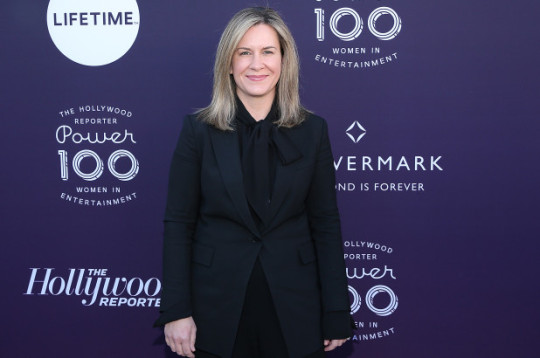
NBCUniversal has ousted top reality TV exec Meredith Ahr following an investigation into claims that she and former NBC entertainment president Paul Telegdy cultivated a toxic culture at the network.
No replacement for Ahr, who headed up the studio’s reality TV division, has been named.
Ahr’s departure follows damning allegations published by The Hollywood Reporter accusing Telegdy and Ahr, his right-hand exec, of bullying employees and talent. Following the report, Telegdy was let go and the network said it would hire an investigator to look into the allegations.
The Post reported last month that NBCU has been quietly interviewing candidates to replace Ahr, suggesting a replacement could be named soon.
According to a subsequent THR report Monday, the NBCU investigator interviewed more than 60 current and former network employees and found that Telegdy and Ahr’s behavior was “not in line with standards the company expects, especially from its senior leaders.”
NBCU did not respond to requests for comment.
According to THR’s initial report from July 31, over 30 former and current employees claimed that the two TV execs ran a “mean girls club” with Telegdy setting the tone by mocking gay staffers, telling sexually explicit personal stories during meetings and making racially insensitive remarks.
Last November, actress Gabrielle Union, a former judge on NBC’s “America’s Got Talent,” filed a harassment lawsuit that accused the network of being “a snake pit of racial offenses,” and claimed she was axed from the show when she complained.
SEE ALSO
NBCUniversal quietly looking to replace TV exec amid toxic workplace probe
At the time, NBCU denied the claims, but last month, the network said it negotiated a settlement with Union.
In recent months, NBCU has been in the throes of a reorganization that has led to massive layoffs and a restructuring of its executive ranks. The company promoted longtime exec Frances Berwick to lead the entertainment business and it lured away Susan Rovner, a Warner Bros. TV exec, to oversee all programming for NBCU earlier this month.
Sources told The Post that even before Rovner officially joined NBCU, the network was circling the exec’s Warner Bros. colleague, Michael Darnell, to replace Ahr.
Darnell, who runs unscripted & alternative TV, has been dubbed in the press “the king of reality TV” and brought “American Idol,” “So You Think You Can Dance?” and “Family Guy” to the small screen while working at Fox in the early aughts.
Warner Bros. denied that Darnell is in talks to leave the company and Darnell did not return requests seeking comment.
0 notes
Text
Happy Effin’ Anniversary to Me!
I was going to write something as part of this week’s upcoming Weekend Warrior, because I’m celebrating a couple personal anniversaries this month. Maybe “celebrating” is too strong a word, because there really doesn’t seem to be much to celebrate right now.
Sure, I’m pretty darn happy I’m alive seven years after getting a stem cell transplant for the acute lymphoblastic leukemia (ALL) that very nearly could have killed me in 2013. I’m also still thrilled to no end that the good doctors of the James Hospital at OSU were able to find me a great stem cell donor like Michael Levin whose stem cells have helped give me a super-strong immune system that I feel can fight off anything (including COVID-19). But all of what I went through in 2013, and 2014, and 2015, and that I’m STILL going through with all of the long-term damage done by my leukemia and its treatment – stuff I’ve mostly kept to myself -- just doesn’t really seem like it was worth it anymore.
That brings me to my second anniversary…
As of this coming week (October 10), I’ll have been writing about movies for 19 years (!), mostly reviews and interviews and such, but up until 6 months ago, I was writing every single week about the box office, how movies might do at the box office, how movies did at the box office, etc. And I spent a LOT of time researching and analyzing and writing about these things over and over, week after week, with only a few gaps (like for that aforementioned leukemia treatment and stem cell transplant).
Right now, the box office is pretty much dead, and that’s because theatrical moviegoing is dead, and no one in any level of the movie business or in any level of government seems to want to do anything about it, except sit at home cowering and/or watching their substandard junk stuff on streaming or “virtual cinema,” if you prefer. Virtual indeed.
I have made my feelings pretty clear on this subject. In fact, I’m one of the few people who has constantly been putting my ass and neck on the line to convince people that going to the movies can be done safely, and what do I get for it? I get called names, have insults hurled at me, lost fucking friends – a few of them who I actually kinda liked, too – and here we are, six months after movie theaters were shut down in New York with absolutely zero sign that the governor will ever fulfill the promise he made months ago about “reopening the valve.” New York City has been in Phase 4 for over two months and he finally allowed indoor dining in NYC that the rest of the state has been able to do safely for months. No, apparently Cuomo has had the same lame-ass bullshit shoved down his throat about movie theaters being “death traps,” the same fucking yapping #FilmTwitter big shots going on and on about, “Oh, no, I need to protect my readers from themselves by warning them that if they go see a movie I write about in theaters, they will DIE!!!”
I have this great new job at Below the Line that I really like right now, but I’m still just sitting in front of my laptop every single fucking day for 12 to 15 hours trying to keep watching and reviewing movies in this far from ideal setting just for YOU, the five or six people who are reading this right now. So yeah, if I seem to be rather ornery on social media whenever a studio chickens out and decides to move their summer 2020 release to the summer of 2021, presuming things will be better by then and that there may be any movie theaters left then… (and with apologies to Steve Martin)… EXCCUUUUUUUUSE ME!
Sure, I make a joke, but I’m pretty darn pissed off right now, but especially from the amount of lame-ass big mouths who are constantly pushing back at me anytime I make any sort of comment about movie theaters reopening safely, and not just on Twitter either. I’ve made my case. I’ve written thousands of words and offered more than sufficient proof to allow people to make their own decisions.
If you don’t want to go back to movie theaters than don’t go. You do whatever you want to do, but don’t give me shit when I request and yes, even demand, that I am given the right to do what I want to do, and that’s to be able to see movies in theaters again without having to get on a train to Connecticut or New Jersey. There are about a half dozen movie theaters sitting empty and dormant within walking distance from me, so the fact I have to go into another jurisdiction is actually more likely to spread the COVID that a.) I don’t have, b.) have never gotten and c.) don’t plan on getting anytime soon.
The way things are developing and with no new strong new releases being offered to movie theaters, they’re just going to start shutting down again out of lack of money to run them. It’s already happening and people who have made a pretty penny getting WAY overpaid for what they do for a living i.e write about movies, just like I’ve been doing for 19 years, they seem to be celebrating every single time a movie is delayed. Every day this goes on, it seems even less likely movie theaters will ever be able to reopen. Not because they’re unsafe but due to the corporations trying to save their bottom lines while firing thousands of employees.
I can’t tell you how much it bristles me to no end knowing that there are hirable movie writers out there being paid $100k+ a year, more than double what I’ve made at my highest paying job as a movie writer, to sit at home and complain about anyone who wants to try to get movie theaters reopened, get people out of their houses and into theaters so that there will actually be movie theaters left by the time the studios decide to release their oh-so-precious tentpole movies.
I commend Warner Bros. and Christopher Nolan because they tried to do something that no one else out there had the balls to do, and that was to release Tenet in a market that had been so downtrodden, first by COVID and then by the movie critics, that there was no possible way the movie could have made anywhere near what it would have made if this pandemic had never happened. And once again, the theatrical naysayers celebrate.
I have made every effort I can to support this business, even if it’s just doing a bit of unnecessary traveling to another state to help a business that has given me everything (but also nothing) for the past 19 years of my life.
Don’t worry. I’m not quitting. There will still be a Weekend Warrior next week probably with just as many reviews as I’ve been writing since the pandemic started. That’s over 150 reviews in the last six months, if you’ve lost count, and they’re all on my Rotten Tomatoes page if you don’t believe me. I have no plans on slowing down.
And what do I get for that hard work every week? No fame, no glory, and nowhere even close to the money as many of the people throwing out insults along with one or two perfunctory reviews a month just to keep their memberships in some critics group or other valid… all while they sit at home on their fucking asses watching movies on their fucking computer screens (probably in their underwear). Just like I have been doing. (I have worn pants most of the time.)
But yeah, if these people want to keep attacking me, if they want to argue and fight over every single one of my ideals and my own personal rights as a human being? If some idiot bonehead loser like [NAME REMOVED] REALLY wants to start a war with me, then guess what? They’ve fucking got it*.
As of today, October 3, I’m ready to start my war, and it’s going to make Mad Max: Fury Road look like fucking Babe: Pig in the City*.
Maybe if George Miller ever gets around to making another movie, HE can try to save whatever’s left of movie theaters. It will probably be something like out of one of his “Road Warrior” movies, because “movie theaters” will just be people sitting cozzily in their cars, hopefully wearing pants and watching movies on the side of a building from the “safety” of their gas-guzzling, ozone layer depleting cars. Hurray.
(*A. I’m not REALLY starting a war. I’m just fucking around, and B.) This was actually a bit of self-deprecating humor about the weight I’ve gained during the pandemic because I’m NOT running around the city trying to get to screenings as I often was during pre-pandemic.)
0 notes
Text
Press: Secrets of the Marvel Universe
VANITY FAIR – After a decade of unprecedented success, Marvel Studios is at a pivotal moment: the looming farewell to some of its founding superheroes, and the rise of a new generation. Kevin Feige, the creative force behind the $13 billion franchise and a slew of Marvel stars, discusses its precarious beginnings, stumbles, and ever-expanding empire.
On a sweltering October weekend, the largest-ever group of Marvel superheroes and friends gathered just outside of Atlanta for a top-secret assignment. Eighty-three of the famous faces who have brought Marvel’s comic-book characters to life over the past decade mixed and mingled—Mark Ruffalo, who plays the Hulk, bonded with Vin Diesel, the voice of Groot, the monosyllabic sapling from Guardians of the Galaxy. Angela Bassett, mother to Chadwick Boseman’s Black Panther, flew through hurricane-like conditions to report for duty alongside Robert Downey Jr., Scarlett Johansson, Gwyneth Paltrow, Brie Larson, Paul Rudd, Jeremy Renner, Laurence Fishburne, and Stan Lee, the celebrated comic-book writer and co-creator of Iron Man, Spider-Man, Doctor Strange, the Fantastic Four, and the X-Men.
Their mission: to strike a heroic pose to commemorate 10 years of unprecedented moviemaking success. Marvel Studios, which kicked things off with Iron Man in 2008, has released 17 films that collectively have grossed more than $13 billion at the global box office; 5 more movies are due out in the next two years. The sprawling franchise has resuscitated careers (Downey), has minted new stars (Tom Hiddleston), and increasingly attracts an impressive range of A-list talent, from art-house favorites (Benedict Cumberbatch and Tilda Swinton in Doctor Strange) to Hollywood icons (Anthony Hopkins and Robert Redford) to at least three handsome guys named Chris (Hemsworth, Evans, and Pratt). The wattage at the photo shoot was so high that Ant-Man star Michael Douglas—Michael Douglas!—was collecting autographs. (Photographer Jason Bell shot Vanity Fair’s own Marvel portfolio shortly afterward.)
But it wasn’t Samuel L. Jackson’s Nick Fury or even Chris Evans’s Captain America who assembled Earth’s mightiest heroes. They came for Kevin Feige, the unassuming man in a black baseball cap who took Marvel Studios from an underdog endeavor with a roster of B-list characters to a cinematic empire that is the envy of every other studio in town. Feige’s innovative, comic-book-based approach to blockbuster moviemaking—having heroes from one film bleed into the next—has changed not only the way movies are made but also pop culture at large. Fans can’t get enough of a world where space-hopping Guardians of the Galaxy might turn up alongside earthbound Avengers, or Doctor Strange and Black Panther could cross paths via a mind-bending rift in the space-time continuum. Other studios, most notably Warner Bros., with the Justice League, have tried to create their own web of interconnected characters. Why have so many failed to achieve Marvel’s heights? “Simple,” said Joe Russo, co-director of Avengers 3 and 4. “They don’t have a Kevin.”
Before Feige, Marvel Studios wasn’t even making its own films. Created in 1993 as Marvel Films, the movie arm of the comics company simply licensed its characters to other studios, earning most of its money from merchandise sales. (The popular 2002 Sam Raimi-directed Spider-Man movie, for example, was made by Sony’s Columbia Pictures.) Feige was part of the team that pushed for the studio to take full creative control of its library of beloved characters, a risky move at the time. “For us old-timers—me and Robert [Downey] and Gwyneth [Paltrow] and Kevin—it felt like we were the upper-classmen,” Jon Favreau, director of the first two Iron Man movies, told me shortly after the photo shoot. “We were emotional . . . thinking about how precarious it all felt in the beginning.”
Feige has never really forgotten that feeling of uncertainty. He confessed that he experiences pangs of anxiety “multiple times” on every film, and told me he often wonders, “What is the movie that’s going to mess it all up?” But, as the vaunted Marvel Cinematic Universe enters its second decade, perhaps the more pressing question is: What’s the movie that’s going to keep it all going?
After Avengers 4, an ambitious multi-franchise crossover movie slated for release in 2019, at least some of the original characters who sit at the center of the billion-dollar Avengers team will be hanging up their capes and shields. That’s partially because the Marvel contracts with the actors who play them—Evans (Captain America), Ruffalo (Hulk), Downey (Iron Man), Johansson (Black Widow), Hemsworth (Thor), and Renner (Hawkeye)—are coming to an end. Meanwhile, DC Comics’ Wonder Woman, one of the top-grossing films of 2017, proved that Marvel doesn’t have a monopoly on beloved superhero icons.
Disney promises that Marvel has at least another 20 years’ worth of characters and worlds to explore—for starters, the studio is finally delivering films with black and female heroes at the core—but declines to offer up any secrets of that ambitious slate. Moviegoers, for now, will simply have to trust in Feige. Luckily for Marvel obsessives, the 44-year-old studio executive is one of them. “At the heart of Kevin is a real”—Scarlett Johansson paused before using the same word everyone does to describe her boss—“fanboy.”
THE FANBOY
On the morning of the premiere of the latest Avengers film—Thor: Ragnarok—Kevin Feige sits in his office on the second floor of the Frank G. Wells Building, on the Walt Disney Studios lot. Alongside a shelf of his trademark baseball caps, some stacked four deep, Feige’s walls and tables are adorned with reminders of the characters, narratives, and modern-day myths he’s brought to the big screen. But when it comes time to tell his own origin story, Feige smiles warmly at me before . . . pretending to fall asleep.
It’s not that he’s told the story too often—Feige rarely talks about himself in interviews—he just finds his own journey deeply uninteresting. Mark Ruffalo thinks this is actually the key to Feige’s success: “The people that I think are great, like Daniel Day-Lewis, don’t make it about them—it’s about the material,” he said. “You don’t see Daniel Day-Lewis trying to show you how fucking great Daniel Day-Lewis is, and he’s our greatest actor. Kevin’s like that.”
Feige obligingly zooms through his biography for me: childhood in Westfield, New Jersey, in the late 70s and 80s, an obsession with blockbusters (Superman, Star Wars, Star Trek, Indiana Jones, Back to the Future), terrible grades in junior high, movies at the local theater every Friday night. Comics were O.K., but movies were his thing. Feige’s grades improved in high school, and he got into the University of Southern California—his goal since he was 11 or 12 years old—only to be rejected from its selective film school five or six times before he got in. All he wanted to do, his entire life, was make films.
As he relaxes in the interview, Feige’s storytelling instincts kick in, and he begins to infuse his own narrative with touches of destiny or, as he calls them, “Can you believe it?” moments.
The first of those moments came years before when Feige landed a college internship working for director Richard Donner and his wife, producer Lauren Shuler Donner. Later, when each Donner was looking to hire a full-time assistant, Feige thought the choice was clear. Richard Donner, who directed Superman, was one of Feige’s idols. (“Superman was formative,” he says.) But he ultimately decided to work for Shuler Donner—the busier of the two—and set himself on the road to becoming a producer. Which is how he found his way to Marvel and an important lesson in risktaking.
Shuler Donner was a producer on, and a driving force behind, X-Men, a 2000 Fox film starring Marvel characters. One day on set, Shuler Donner and Avi Arad, then head of Marvel Studios, watched as an exasperated stylist, at Feige’s insistence, sprayed and teased actor Hugh Jackman’s hair higher and higher to create the hairstyle that would become the signature look of the character Wolverine. The stylist “eventually went ‘Fine!’ and did a ridiculous version,” Feige recalls. “If you go back and look at it,” he admits, “he’s got big-ass hair in that first movie. But that’s Wolverine!” The experience stuck with Feige. “I never liked the idea that people weren’t attempting things because of the potential for them to look silly,” he says. “Anything in a comic book has the potential to look silly. That doesn’t mean you shouldn’t try to make it look cool.”
Feige’s passion and geeky attention to detail caught Arad’s eye. (He affectionately refers to Feige as a Trekkie.) Arad hired Feige and sent his new employee to studios that licensed Marvel characters to monitor the company’s intellectual property, offer helpful notes, and generally serve as a Marvel ambassador. Feige watched directors like Sam Raimi with fascination and others, occasionally, Favreau noted, in “frustration” in the era of films such as Daredevil, Ang Lee’s Hulk, and The Punisher. Feige’s advice was sometimes ignored, and many of those films became notorious flops. “The answers,” Feige still says, explaining why comic-book adaptations go wrong, “are always in the books.”
By the time Arad had a financial plan in place for Marvel to finance its own films, Hollywood had turned its back on the superhero genre. Even Marvel’s most popular character, Spider-Man, disappointed at the end of his trilogy in 2007. “Some people were giving last rites” to the genre, Favreau said.
Feige downplays it now, but like Sky Masterson in Guys and Dolls, Marvel Studios bet everything on the first roll. Borrowing money by offering up film rights to its biggest characters as collateral and tirelessly pitching the idea to skeptical foreign buyers, Feige and Arad finally hired three directors to make movies for Marvel Studios: Favreau for Iron Man, Louis Leterrier for The Incredible Hulk, and Edgar Wright for Ant-Man. (Only Favreau would become part of the enduring Marvel legacy.) “People forget Iron Man was an independent movie,” Feige says.
The gamble paid off. Iron Man premiered to rave reviews and a huge box office in 2008, giving Marvel the financial cushion and industry credibility it needed to forge on with its strategy. Meanwhile, as the ranks of Marvel Studios swelled beyond a skeletal operation, its C.E.O. decided to depart. “You can talk to my friends and enemies, and they’ll tell you my weakest point is I’m a one-man show,” Arad said. Not wanting to deal with the infrastructure that comes with launching a major franchise, Arad stepped down before the first Iron Man hit theaters but not before anointing his heir apparent. At only 33 years old, Feige was officially in charge of the first significant independent studio since DreamWorks.
BIRTH OF A UNIVERSE
Marvel’s run as an indie studio didn’t last long. The Walt Disney Company had been looking for a producer of “tentpole” films that could expand its audiences beyond family-friendly fare and the girl-centric princess line. Marvel, with its built-in audience of young men, fit the bill, and Disney acquired the company in 2009 for $4 billion. (Another “Can you believe it?” moment for Feige, who spent annual childhood vacations at Disney theme parks.)
Even with Disney’s deep pockets, Marvel continued to run a lean operation. Up until four years ago, Feige operated out of a series of unassuming offices—one shared with a kite company in West Los Angeles, one above a Mercedes-Benz dealership in Beverly Hills, and one Manhattan Beach office that, even after the success of The Avengers, was “cheap” and “dreary,” as Guardians of the Galaxy director James Gunn remembers.
On the wall of one of those early, drab offices hung a 1988 Technicolor poster by Marvel artists Ed Hannigan and Joe Rubinstein, crowded to the margins with hundreds of characters from all different story lines with the words MARVEL UNIVERSE emblazoned across the top. Feige would challenge visitors to find the smallest figure in the scrum.
Feige said he had long believed in the storytelling potential of weaving together Marvel’s superheroes and plots—in essence bringing that Marvel-universe poster to life. His hunch was validated by the media coverage around the astonishing $ 98 million opening weekend of Iron Man. Samuel L. Jackson’s brief appearance in that movie as Nick Fury, director of a counterterrorism agency central to the Marvel universe, initially was meant as an Easter egg, a knowing wink, for die-hard fans. “We put it at the end so it wouldn’t be distracting,” Feige said of the post-credits stinger that launched a decade-long trend. But after he saw how audiences—not just devoted comics fans—responded to Fury’s appearance, Feige knew the idea of cross-pollinating characters and movies had legs.
One early challenge was getting actors to sign up for Marvel’s ambitious vision. A character might star in one film, be part of an ensemble in another, and just make a goofy guest appearance in yet another. Jackson signed an unheard-of nine-picture deal with Marvel shortly after Iron Man came out, ensuring his participation in the subsequent Avengers movies and other Marvel properties. Feige found it particularly challenging to secure Chris Evans as Captain America, a character who acts as leader of the Avengers. Evans, who’d previously tackled the comic-book genre as Johnny Storm in the Fantastic Four movies, was hesitant to sign a long-term deal that would prevent him from doing other projects. Evans asked for a weekend to make his decision—Feige cited those few days as among the most nerve-racking of his tenure—before committing to six movies. Once Hemsworth agreed to play Thor, another foundational Avenger, Feige’s grand plan was under way. (It doesn’t hurt that Marvel contracts can be supremely lucrative. Robert Downey Jr. reportedly made $ 80 million in 2015, thanks largely to his work as Iron Man.)
Still, it wasn’t until a celebratory night in Rome in 2012, on the Avengers press tour, that the Marvel extended family really understood what its boss had planned. “I’m socially awkward,” Feige said. (“He’s short on kibitz,” Downey likes to say.) “So I talked about what we can do next.” As the hotel staff shushed them and the hour grew late, Feige pulled back the curtain on his master plan—or at least some of it. “I would like to take all of the comics and start to build the Marvel universe,” Feige declared. “We’ll have 15 productions in the next two years!”
THE MARVEL WAY OR BUST
Marvel’s first decade of moviemaking has not been without its misses and heartaches. Neither Iron Man 2, which came out in 2010, nor 2013’s Thor: The Dark World won critical raves. Two prominent directors—Edgar Wright and Joss Whedon—very publicly parted ways with Marvel after squabbling with the studio over artistic control. Wright, who wrote an early draft of Ant-Man but left the project in 2014 before filming began, declined to comment for this story. Whedon, who wrote and directed two Avengers movies and severed ties with Marvel in 2016, did not respond to requests to talk about his departure. But in published interviews both men have said they felt they had to sacrifice their own vision to serve Marvel’s interests.
The exodus of two admired artists (Wright was known for his genre send-ups Shaun of the Dead and Hot Fuzz, Whedon for creating the Buffy the Vampire Slayer television series) was not a good look for Marvel, which until then had enjoyed a fanboy-friendly reputation. From inside the family, James Gunn, Anthony Russo, and Evangeline Lilly, an Ant-Man star, described this period as a messy “divorce” and the tone around the studio as “uneasy.” Some critics argued that Marvel’s success spawned so many big-budget copycats that creativity didn’t stand a chance in Hollywood. Even one of Feige’s childhood heroes, Steven Spielberg, took a public shot at the glut of comic-book movies.
Feige doesn’t deny that directors need to play by a set of rules when they join Team Marvel, especially now that the concept of a single cinematic universe is non-negotiable. “Filmmakers . . . coming in understand the notion of the shared sandbox more than the initial filmmakers did because the sandbox didn’t exist then,” he said.
At the same time the studio seems increasingly willing to let directors be experimental and original in other ways. “Guardians is probably the best example of the audience validating even our more esoteric instincts,” Feige said. The unabashed goofiness of the Guardians of the Galaxy movies and the gonzo tone of Taika Waititi’s Thor: Ragnarok signal a radical departure from, say, the staid bleakness of Thor: The Dark World. Director Ryan Coogler’s upcoming Black Panther movie marks another major shift for Marvel: in February, the studio will launch its first movie with a black actor, Chadwick Boseman, in the lead. Captain Marvel, starring Brie Larson in the title role of a female air-force captain with superpowers, opens in 2019. “I can’t think of anybody [at Marvel] that hasn’t directly approached me and had very, very in-depth conversations about Panther,” Boseman told me.
LIFE WITH IKE
It seems like more than happenstance that Marvel’s emphatic inclusiveness coincides with a long-overdue 2015 management re-structuring by Disney that put Feige firmly in control of the studio and quietly sidelined Isaac “Ike” Perlmutter, Marvel’s controversial chairman and former C.E.O. Perlmutter is a shadowy but essential figure in the world of Marvel. The 75-year-old mogul helped rescue Marvel Entertainment Group from bankruptcy in 1998, when he merged it with Toy Biz Inc., a company he co-owned. Though Perlmutter endorsed Marvel’s decision to make its own films, he clung to outdated opinions about casting, budgeting, and merchandising that ran counter to trends in popular culture, sources close to the studio said. For example, Perlmutter, citing his years in the toy-making business, reportedly made the decision to scale back production of Black Widow-themed merchandise in 2015 because he believed “girl” superhero products wouldn’t sell.
Director James Gunn chalked up every conflict he had making Guardians of the Galaxy to Perlmutter and the Marvel “creative committee”—a legacy of the studio’s early days—which read every script and gave writers and filmmakers feedback. Said Gunn, “They were a group of comic-book writers and toy people” who gave him “haphazard” notes. The committee, for example, suggested Guardians of the Galaxy ditch the 70s music that the film’s hero loves. (The movie’s soundtrack, featuring retro hits, would later go platinum.) Members of the creative committee declined to comment for the story. Perlmutter also declined to comment, but a person with knowledge of his approach said, “Ike Perlmutter neither discriminates nor cares about diversity, he just cares about what he thinks will make money.”
In August 2015, a few months after rival Warner Bros. earned serious feminist bragging rights with its announcement that Patty Jenkins would direct Wonder Woman, Disney confirmed that it had changed Marvel’s management structure: Feige would report to Alan Horn, chairman of Walt Disney Studios, ostensibly as part of an effort to integrate Marvel into the bigger Disney film family. Perlmutter remains chairman of Marvel Entertainment. An early Trump supporter, he also advises the White House on veterans’ issues.
Critics sometimes forget that Feige announced Captain Marvel and Black Panther in 2014—during the Perlmutter era. Instead they focus on how Marvel missed the chance to make the first female-led superhero movie of the modern era. I asked Feige if he wished Marvel had gotten there before Wonder Woman. “Yeah,” he answered carefully. “I think it’s always fun to be first with most things.” Ever the fanboy, Feige got chills recounting the heroine’s powerful stand in No Man’s Land for me in his office. “Everything’s going to work out,” he said cheerfully. “Captain Marvel is a very different type of movie.”
THE AVENGERS, AND EVERYTHING AFTER
One week before the Marvel 10th-anniversary photo shoot, on the set of Avengers 4, I watched Marvel’s biggest stars lounge on comfy couches under a canopy in the long stretches between takes. Mark Ruffalo scratched Scarlett Johansson’s back, while Johansson, Chris Evans, and several other Avengers hunched over their phones in a competitive game of Words with Friends. I reached for a camera to record the moment—some of the most famous faces in the world lit up by phone screens just like the rest of us—but the ever vigilant Marvel security team had wrapped my phone in layers of protective tape. Later, Chris Hemsworth mentioned that very moment to me. “I thought, Could somebody take a photo of this? We’re all aware that this is going to be the last time we get to hang out like this.”
And yet the actors who have contributed so much to Marvel’s past successes have little doubt about the studio’s future. “I feel a lot of joy for the next generation,” Johansson said. “It’s a bittersweet feeling, but a positive one.”
In true Marvel fashion, members of the original Avengers team will help pave the way for the new guard. The latest Captain America introduced fans to Boseman’s Black Panther while Downey’s Tony Stark mentored Tom Holland’s Peter Parker in Spider-Man: Homecoming—“serving at the pleasure of young Master Holland,” Downey said with characteristic flair. Spider-Man’s return to the Marvel fold is a coup for Feige, who helped orchestrate a hero-sharing arrangement with Sony.
To hear Disney C.E.O. Bob Iger tell it, Marvel’s next wave is just beginning. He notes that the studio has rights to 7,000 characters, who can travel anywhere their creators wish to take them. “We’re looking for worlds that are completely separate—geographically or in time—from the worlds that we’ve already visited,” Iger explained.
Both Iger and Feige hinted at how the franchise will expand into different realms, with James Gunn working in close collaboration to possibly spin off some characters from the extraterrestrial world of the Guardians of the Galaxy. Marvel is “22 movies in, and we’ve got another 20 movies on the docket that are completely different from anything that’s come before—intentionally,” Feige said.
While Feige refused to reveal any details about the characters and stories Marvel has yet to introduce, he did promise a definitive end to the franchise that built Marvel. Avengers 4, he said, will “bring things you’ve never seen in superhero films: a finale.” This may mean a lot of dead Avengers at the hands of the villain Thanos, who has appeared sporadically and tantalizingly since the first Avengers movie back in 2012. But the Marvel Cinematic Universe will live on. “There will be two distinct periods. Everything before Avengers 4 and everything after. I know it will not be in ways people are expecting,” Feige teased.
“Everything after,” without these Marvel mainstays, will be hard work. The studio constantly needs to cast new actors, develop surprising new narratives, and risk looking a little silly—as Feige did with Wolverine’s hair—all under the harsh glare of millions of fans and detractors watching the studio’s every move. Feige, however, has no worries about Marvel’s longevity, a point he illustrated by quoting one of his personal heroes: “On opening day, when people asked Mr. Walt Disney if Disneyland was finished, he said, as long as there’s imagination in the world, Disney will never be complete.” And as long as people are willing to watch superheroes save the world, Marvel—and Kevin Feige—won’t be done, either.
Press: Secrets of the Marvel Universe was originally published on Elizabeth Olsen Source • Your source for everything Elizabeth Olsen
2 notes
·
View notes
Text
Slashdot: Game Devs Allege Extreme 'Crunch' Overtime at 'Mortal Kombat 11' Studio NetherRealm
Game Devs Allege Extreme 'Crunch' Overtime at 'Mortal Kombat 11' Studio NetherRealm Published on May 05, 2019 at 05:50PM Days after Mortal Kombat was inducted into the World Videogame Hall of Fame, multiple sources at its creator (Warner Bros Interactive studio NetherRealm) are alleging a toxic workplace with 100-hour workweeks, Variety reports, citing seven current and former full-time employees and contractors: Reports of low pay and the crunch of extreme overtime as workers tried to finish the game on time initially surfaced about NetherRealm Studios on social media earlier in April, but those issues appear to be symptomatic of a long-term poisonous work culture at the studio, according to seven people who spoke to Variety -- five of whom asked that their names not be used for fear of reprisals... The common thread among all the sources was that they said they felt the pressure to work long hours came with the threat of being replaced or denied a chance at a more... One current employee said that he and others at the studio have been working 60 to 70 hours per week, seven days a week since January. While he said various factors are to blame for the crunch, such as poor communication and mismanagement, he cited a January marketing event for "Mortal Kombat 11," called MK Day, which put the studio behind significantly... The catch-up still persists, even though "Mortal Kombat 11" was released on April 23. Problems with in-game currency and exploits have the studio working on its third patch to fix glitches, and it already has two more patches planned. When asked how the studio higher-ups are positioning this "catch-up" work, the current employee said that they phrase it very carefully. "I think they walk that fine line really well," he said. "So it's a lot of implying, not up-front. They don't tell us, 'You have to work these hours.' They also don't tell that to any of the temporary/contract employees. When we interviewed all of our contractor/temporary employees, my direct manager would tell them, 'Overtime isn't mandatory, but everyone is expected to do their fair share.' Meaning when we have it -- because even before we started interviewing and building up our temp team, we already knew there's going to come a point where we're going to start crunching because we've been doing this since time immemorial, [on] every project." Some full-timers have taken to living at the studio when working the most intense periods of crunch, he said, sleeping in their office or on an inflatable sofa in their cubicle. One employee has even been spotted wearing a bathrobe while in the studio. One source said that for some of the temporary positions, it's easy enough to replace those who don't crunch with a new batch of eager contractors. Many temporary employees are recruited from DePaul University, the person said, and are students who are willing to work a nine-month contract for $14 an hour in exchange for the chance to work on a triple-A franchise. In a statement to Variety, NetherRealm Studios said they were "actively looking into all allegations" as "we take these matters very seriously and are always working to improve our company environment." But last week James Longstreet, a developer who worked on 2011's "Mortal Kombat," posted on Twitter that "The [Mortal Kombat] team's stance is that crunch works, and MK games are always profitable, so it's clearly the right thing to do. "It's wrong -- crunch doesn't work, the workers don't see the profit (bonuses at WB games are capped to a small percentage of salary), and it ruins lives."



Read more of this story at Slashdot.
0 notes
Text
A year after Weinstein, has Hollywood’s culture of inequality changed?
A year after Weinstein, has Hollywood’s culture of inequality changed? https://ift.tt/eA8V8J A year after Weinstein, has Hollywood’s culture of inequality changed?
NEW YORK — After Rashida Jones exited Pixar’s “Toy Story 4” in 2017 she noted that the studio, after 25 years in business, had not made a single feature film directed by a woman, calling it “a culture where women and people of colour do not have an equal creative voice.”
So when Pixar co-founder and CEO John Lasseter stepped down earlier this year after acknowledging “missteps” in his behaviour with employees, he was more than another casualty in the long list of film industry power players toppled by the #MeToo movement. He was a symbol of a Hollywood culture that is dying — or at least under siege.
“These giant, multi-billion-dollar companies, they all need a makeover,” Jones now says. “And I think people are starting to recognize that. To me, that is a victory. Brave people have come forward and made this whole machine start to question itself.”
In the year since sexual assault allegations surfaced against Harvey Weinstein, Hollywood has been soul-searching. The Weinstein case — along with those of Kevin Spacey, CBS’ Les Moonves, Amazon Studios’ Roy Price and many others — laid bare the painful reality for countless women in a movie industry where gender inequality was systematic and pervasive.
//<![CDATA[ ( function() { pnLoadVideo( "videos", "HfhA_I6JLhE", "pn_video_629720", "", "", {"is_mobile":""} ); } )(); //]]>
The #MeToo movement has gone far beyond the movies, but Hollywood remains ground zero in a cultural eruption that began 12 months ago with the Weinstein revelations, published by The New York Times and The New Yorker. Through interviews with actresses, filmmakers, producers and others, The Associated Press sought to assess whether it is a palpably different place today than a year ago.
“Definitely there’s been a seismic shift,” says Carey Mulligan, the British actress. “I feel like if I was walking down the street and someone said something or did something outside the bounds of appropriate, I would feel so much more empowered to tell them to f— off while before I probably wouldn’t. Those sort of grey area things are now no longer grey areas.”
//<![CDATA[ ( function() { pnLoadVideo( "videos", "iYXLMF4TqjA", "pn_video_87829", "", "", {"is_mobile":""} ); } )(); //]]>
Mulligan, who played an early 20th century women’s rights activist in 2015’s “Suffragette” and has herself been vocal about Hollywood’s pay gap, says that in every job she’s had for the last year, there’s been a well-known code of conduct on set. She’s optimistic that more change is coming.
Researchers at the University of Southern California’s Annenberg Inclusion Initiative have not yet found any marked difference in female representation on screen, behind the camera or in the boardroom. More data after the end of the year will give a clearer picture of 2018, but the previous 20 years have shown almost zero change. At least anecdotally, studios and production companies are more aggressively hunting for female filmmakers. Salma Hayek has said her production company has been struggling to find female writers and directors. They’re all already booked.
Vivica A. Fox says #MeToo shouldn't be used 'as an excuse to take down people'
Louis C.K. returns to stand-up stage after #MeToo scandal
“Everybody’s looking for their female content,” says Jones, whose documentary “Quincy” was recently released by Netflix. “They’re starting to understand that content that’s created by and shepherded by women and people of colour is super underrepresented in the business. And everybody’s scrambling to try to fix that.”
Measuring cultural change in a far-flung, $50 billion industry is difficult. Many of the epicenters of the movie business — red carpets, film festivals, award shows — have struck a different tone in the wake of Weinstein. While “who are you wearing” has steadily crept back into the red-carpet lexicon a year after women wore black to the Golden Globes, protest has engulfed many of the frothiest events on the movie calendar, from the Oscars to the Cannes Film Festival .
But some see a limit to what such demonstrations can accomplish.
“It’s a great thing when you’re on the red carpet and people are talking about sexual assault. At least it’s out in the open,” says actress Viola Davis. “My fear is that people feel like the focus of sexual assault is just on actresses in Hollywood and studio execs like Weinstein.”
She worries about the movement becoming limited to “outing the men, putting them in the court of public opinion and just destroying their careers. It’s way bigger than that. One out of every 4 women — and there’s some statistics that say it’s 1 out of 3 — will be sexually assaulted by the time they’re 18.”
Like many revolutions before it, #MeToo has sought to codify permanent changes. The Academy of Motion Picture Arts and Sciences instituted a code of conduct and booted not only Weinstein but Bill Cosby and Roman Polanski.
In addition, “inclusion riders” — contractual agreements to try to hire diverse casts and crews — have proliferated. Last month, Warner Bros. became the first major studio to make a similar pledge. Many prominent film festival directors have also signed agreements to push their executive boards to gender parity.
//<![CDATA[ ( function() { pnLoadVideo( "videos", "inyPQsndp90", "pn_video_775358", "", "", {"is_mobile":""} ); } )(); //]]>
In an attempt to abolish the “casting couch” culture that Weinstein allegedly exploited, The Screen Actors Guild created guidelines — supported by the producers’ guild — instructing producers and executives to refrain from holding professional meetings in hotel rooms and homes. It urged members not to agree to meetings in “high-risk locations.”
“People have been talking for decades about how terrible the casting coach is. Even with that knowledge, it was still going on. There was nothing concrete, written down saying: unacceptable,” says Gabrielle Carteris, president of SAG-AFTRA. “Us putting that in a guideline was so empowering for members because we’ve all been put in that situation. And I really want to salute the studios because we did it really in partnership with them.”
The guidelines will soon be expanded to establish rules around nudity on set.
“The kind of work we do is so intimate. It’s different than being a lawyer or a doctor or a dentist,” Carteris says. “But there are rules for workers in this country, and it was really important to define what those rules are.”
The movie business still lacks a single, industry-wide reporting system for sexual harassment and assault, though a committee led by Anita Hill is working to create one. Time’s Up , which is spearheading much of the pressure put on Hollywood, has also amassed a $21 million legal-defence fund for women who suffer from harassment and assault at work in any industry.
Yet with everything that has happened in the last year, most observers say not nearly enough has been done to address long-term inequalities in Hollywood.
“It feels like we’re moving in the right direction, but women and minorities are such a tiny percentage of this industry,” says filmmaker Nicole Holofcener, whose latest is “The Land of Steady Habits.” “I open up my Director’s Guild magazine, and it has films that the DGA is screening and sometimes there’s not one woman, not one black person. They are all white male directors and my jaw is on the floor. I think: How can this still be?”
Holofcener has mixed feelings about all the attention on gender.
“It’s a good thing to highlight our work, but I wish we didn’t have to,” she says.
Julia Roberts, who was once among the highest paid movie stars, agrees.
“Every year that it’s ‘the year of the woman,’ let’s just have it always be the year of the artists,” Roberts says. “If we have to keep spotlighting the gender of this and the gender of that, we’re kind of blowing it.”
There are plenty of others in Hollywood who have misgivings about #MeToo. Sean Penn derided what he called the movement’s “salacious” quality, saying its spirit is “to divide men and women.”
But as the recent re-editing of “The Predator” showed, some behaviour remains a work-in-progress. Shane Black called his casting of an old friend, Steven Wilder Striegel, a previously convicted sex offender, an “irresponsible” decision. Striegel was cut the from the film only after actress Olivia Munn alerted 20th Century Fox to Striegel’s past.
//<![CDATA[ ( function() { pnLoadVideo( "videos", "wvxXWZUulzA", "pn_video_848593", "", "", {"is_mobile":""} ); } )(); //]]>
Kirsten Schaffer, executive director of the advocacy group Women in Film , believes that the path to ending harassment is through parity. Evidence backs her up.
“The more women we have in leadership positions, the less likely the incidents of harassment. So we have a lot of work to do on that front,” Schaffer says.
“We’ve been living in a sexist, racist society for hundreds of thousands of years,” she adds. “We’re not going to undo it in a year.”
Canoe Click for update news world news https://ift.tt/2Nnbbzo world news
#metronews24 bangla#Latest Online Breaking Bangla News#Breaking Bangla News#prothom alo#bangla news#b
0 notes
Text
Women accuse Morgan Freeman of inappropriate behavior, harassment
LOS ANGELES — A young production assistant thought she had landed the job of her dreams when, in the summer of 2015, she started work on “Going In Style,” a bank heist comedy starring Morgan Freeman, Michael Caine and Alan Arkin.
But the job quickly devolved into several months of harassment, she told CNN. She alleges that Freeman subjected her to unwanted touching and comments about her figure and clothing on a near-daily basis. Freeman would rest his hand on her lower back or rub her lower back, she said.
In one incident, she said, Freeman “kept trying to lift up my skirt and asking if I was wearing underwear.” He never successfully lifted her skirt, she said — he would touch it and try to lift it, she would move away, and then he’d try again. Eventually, she said, “Alan [Arkin] made a comment telling him to stop. Morgan got freaked out and didn’t know what to say.”
Freeman’s alleged inappropriate behavior was not limited to that one movie set, according to other sources who spoke to CNN. A woman who was a senior member of the production staff of the movie “Now You See Me” in 2012 told CNN that Freeman sexually harassed her and her female assistant on numerous occasions by making comments about their bodies.
“He did comment on our bodies… We knew that if he was coming by … not to wear any top that would show our breasts, not to wear anything that would show our bottoms, meaning not wearing clothes that [were] fitted,” she said.
At 80 years old, Freeman is one of Hollywood’s biggest stars, with a movie career that spans nearly five decades. His starring roles in movies like “Driving Miss Daisy” and “Shawshank Redemption” in the late 1980s and early 1990s made him a household name. He won an Oscar for Best Supporting Actor for 2004’s “Million Dollar Baby,” and has earned four other Oscar nominations. His voiceover work has also become iconic, including his narration for the Academy Award-winning documentaries “The Long Way Home” and “March of the Penguins.”
In all, 16 people spoke to CNN about Freeman as part of this investigation, eight of whom said they were victims of what some called harassment and others called inappropriate behavior by Freeman. Eight said they witnessed Freeman’s alleged conduct. These 16 people together described a pattern of inappropriate behavior by Freeman on set, while promoting his movies and at his production company Revelations Entertainment.
Of those 16, seven people described an environment at Revelations Entertainment that included allegations of harassment or inappropriate behavior by Freeman there, with one incident allegedly witnessed by Lori McCreary, Freeman’s co-founder in the enterprise, and another in which she was the target of demeaning comments by Freeman in a public setting. One of those seven people alleged that McCreary made a discriminatory remark regarding a female candidate for a job at the Producers Guild of America, where McCreary is co-president.
Four people who worked in production capacities on movie sets with Freeman over the last ten years described him as repeatedly behaving in ways that made women feel uncomfortable at work. Two, including the production assistant on “Going in Style” whose skirt he allegedly attempted to lift, said Freeman subjected them to unwanted touching. Three said he made public comments about women’s clothing or bodies. But each of them said they didn’t report Freeman’s behavior, with most saying it was because they feared for their jobs. Instead, some of the women — both on movie sets and at Revelations — said, they came up with ways to combat the alleged harassment on their own, such as by changing the way they dressed when they knew he would be around.
CNN reached out to dozens more people who worked for or with Freeman. Some praised Freeman, saying they never witnessed any questionable behavior or that he was a consummate professional on set and in the office.
Several other times during this investigation, when a CNN reporter contacted a person who had worked with Freeman to try to ask them if they had seen or been subjected to inappropriate behavior by an actor they had worked with — not initially even naming the actor they were asking about — the person would immediately tell them they knew exactly who the reporter had in mind: Morgan Freeman. Some of those people were sources for this investigation while others declined to comment further or did not want what they said used in this story.
The pattern of behavior described by those who spoke with CNN shows another example of the systematic problems that exist in the entertainment industry. The allegations against Freeman are not about things that happened in private; they are about things that allegedly happened in public, in front of witnesses — even in front of cameras. Before #MeToo, many men in the industry could behave without fear of consequences, because many times when a powerful man did so, it was the victim who suffered repercussions.
CNN reached out to Freeman’s spokesperson for comment and then, at his request, emailed him a detailed list of the accusations against Freeman. The spokesperson did not respond to multiple follow-ups by email seeking comment on the accusations.
CNN also reached out to a spokesperson for McCreary, and then provided her with a detailed list of accusations regarding Freeman’s alleged behavior at Revelations and details of the accusation against her as well as a number of questions for her regarding Freeman’s alleged behavior at Revelations and the environment there. The spokesperson did not respond to multiple follow-ups by email seeking comment.
The allegations of inappropriate behavior by Freeman are not limited to the confines of his company or to movie sets. Three entertainment reporters who spoke to CNN said Freeman made inappropriate remarks to them during press junkets, which are publicity events for journalists who cover new films, typically attended by the movie’s biggest stars.
One of the three, CNN entertainment reporter Chloe Melas, the co-author of this article, says she was subjected to inappropriate behavior by Freeman more than a year ago, when she interviewed him at a press junket for “Going in Style.” According to Melas, who was six months pregnant at the time, Freeman, in a room full of people, including his co-stars Arkin and Caine, shook Melas’ hand, not letting go while repeatedly looking her up and down and saying more than once a variation of, “I wish I was there.” She says he also said to her, “You are ripe.” Cameras were on and recording during one of Freeman’s remarks to Melas — ��Boy, do I wish I was there” — but not for the rest. As is common practice with such junkets, Melas was the only CNN employee there at the time.
Afterward, Melas reported what had happened to her supervisor, who instructed her to inform CNN human resources. According to Melas, she was told that CNN HR contacted their counterparts at human resources for Warner Bros., which produced and distributed the movie, and which like CNN is owned by Time Warner. Melas said she was also told that Warner Bros. HR could not corroborate the account because only one of Freeman’s remarks was on video and the Warner Bros. employees present did not notice anything. Melas and her supervisor agreed that she would not cover the movie.
Asked for comment, a spokesperson for Warner Bros. confirmed that what Melas was told was accurate, but declined to comment further. A representative for Caine declined to comment. A representative for Arkin said he was not available for comment.
After the encounter with Freeman, Melas started making calls to see if other women had experienced anything similar, or whether this was an isolated incident. She soon learned that other women had similar stories — and so she, and later her co-author, began this months-long reporting process.
Inside Revelations Entertainment
Freeman and Lori McCreary founded Revelations Entertainment in 1996. Variety reported last year that Freeman started the company with McCreary because he was frustrated by the lack of choice roles for black actors and because he wanted to reveal the truth about serious issues — a mission that inspired the name “Revelations.”
The company’s credits include a list of ambitious films about religion, apartheid, astronomy and stem cell research. Revelations also produced the film “Along Came a Spider” and the hit CBS show “Madam Secretary,” both of which feature strong female leads.
But former staffers who spoke with CNN say that behind the façade of a progressive and artistic agenda the company’s two founders created what one called a “toxic” work environment. Six former staffers said they witnessed Freeman’s questionable behavior around women, which they said included sexual comments and one said included an incident of unsolicited touching. One female former staffer said she was the target of sexual comments by Freeman.
The female former employee at Revelations told CNN that Freeman was flanked by a group of men on the set of “Through the Wormhole” when she met the actor for the first time. He “looked me up and down,” she said, and then asked her, “How do you feel about sexual harassment?”
“I was stunned,” she told CNN. “This is the person that I worked for, this is his company, I didn’t expect it at all … I said timidly, ‘I love it’ in a sarcastic way hoping to make light of the situation because I was so confused and then he turned to the guys on the crew … and said, ‘See guys, this is how you do it.’”
One woman who was a manager at Revelations told CNN that sometimes Freeman would “come over to my desk to say hi and he’d just stand there and stare at me. He would stare at my breasts.”
“If I ever passed him he would stare at me in an awkward way, would look me up and down sometimes stopping and just staring,” she said. “One time he stopped, looked me up and down as I walked into a room of people, and everyone burst out laughing. And I literally froze feeling very uncomfortable and one of the people in the office said, ‘Don’t worry, that’s just Morgan.’”
“That sort of interaction was when I stopped wearing a skirt around the office when he was there,” said the former manager. “I can’t say it was an accident that I’d be wearing a potato sack and a ponytail on certain days when he was there and do my best to avoid him when he was in the office.”
Freeman was not in the office on a daily basis, the former employees said. But when he did show up, he behaved like a “creepy uncle,” in the words of a male former employee. “One time I witnessed Morgan walk up to an intern and start massaging her” shoulder, he said. “The intern got visibly red and wiggled out of his grasp, it was awkward.” The incident stood out to him because Freeman was using only one hand to touch the intern, as his other was injured in a 2008 car accident that was widely covered by the press. Another former employee told CNN she was present when the male former employee told several people about this incident shortly after it occurred.
CNN spoke to two male witnesses who each saw a separate occasion in which Freeman asked women to twirl. One instance occurred at the office, while another happened at an off-site company event.
Another incident stood out to people who spoke with CNN who witnessed it. Two former staffers who were there, and a writer for the show “Madam Secretary” who also attended, each described the scene to CNN.
For his 79th birthday, Revelations threw Freeman a party in the office. According to the sources, roughly 30 people attended the party, some of whom were new to the company and had never met the actor. McCreary was among those in attendance, the sources said.
People at the party had to stand in a circle, a former executive at the company who attended the party told CNN, and tell Freeman who they were and what they did. Then, the former executive said, Freeman went up to women in the circle and would “stand maybe within an inch of their face and just look them up and down and not say anything, and then would move on to the next woman and he’d stand like within an inch of their face and look them up and down and not say anything, and it was really, really strange.” The former executive added, “It was really weird and he did it to every woman but of course he didn’t do it to any of the men. He didn’t speak to any of the men.”
The writer for “Madam Secretary” who was at the party said, “We saw Morgan go around to the girls in the circle and get really close to their faces, he didn’t do it to the men. I don’t know what he said but we all thought it was strange and couldn’t wait to get the hell out of there. Absolutely there were sexual undertones to it.” After the #MeToo movement began, the same writer said, writers on the show joked — with that incident in mind — “that Morgan would be the next person to be called out.”
McCreary herself has also been the subject of demeaning comments by Freeman. In front of what was reportedly an audience of 400 people at 2016’s Produced By conference, Freeman described what she was wearing during their first meeting, saying, “She had on a dress cut to here.”
“She wants to be thought of as serious,” said Freeman of McCreary, who was on the same panel. “But you can’t get away from the short dresses.”
Freeman stood by his comments when he appeared a few days later on the “Today” show and host Savannah Guthrie said some people were “surprised” by the remarks he made on the panel.
“It was just something I said in jest about when I first met her, it was more than 20 years ago,” he said to Guthrie. “How is that news?”
The Hollywood Reporter reported at the time that McCreary “did not visibly react to the comment.” One of the former Revelations executives told CNN that McCreary was visibly upset when she returned to the office.
“I tried to console her and she was clearly upset and I think she was surprised and found it hurtful and embarrassing,” said the former executive. “She was devastated.”
Five sources told CNN that there was no formal human resources department at Revelations at the time. There was a rotation of executives who served as the point of contact for HR issues, but former staffers said they did not feel comfortable talking to senior personnel about their workplace grievances. This prompted some staffers to form a “survivors club” where they gathered to vent about their experiences at Revelations, according to five sources who have been to the gatherings, which take place outside of the office.
Publicly, McCreary champions the #MeToo and Time’s Up movements. Two days before January’s Screen Actors Guild awards, at which Freeman accepted a Lifetime Achievement Award, McCreary released a statement on behalf of the Producers Guild of America (PGA), to say that its board ratified new anti-sexual harassment guidelines for its members. “The PGA is indebted to Time’s Up as a resource in creating our protocols,” she said in a press release issued with her co-president Gary Lucchesi, referring to the initiative aimed at fighting harassment and discrimination against women.
Yet the former Revelations employee who said Freeman asked her how she felt about sexual harassment also alleged that on a phone call with a member of PGA, McCreary said of a candidate vying for a position at PGA East, “she’ll never be able to do a good job, she has a family.”
Two former senior level Revelations employees said McCreary would openly mock women who had to leave work early for family commitments and school functions. McCreary also allegedly said that some employees couldn’t handle big workloads because they had to “run home” to their families and therefore couldn’t stay late at work, according to one of the sources. She openly advocated for work-life balance, that source said, but she would make “snide” remarks to those who left work early.
A spokesperson for the PGA said in a statement, “The Producers Guild of America is an Equal Opportunity Employer that does not question or consider marital or parental status in its hiring practices. As soon as CNN notified us about the allegation, we investigated the matter and have found that it has no merit. Lori McCreary is an outstanding PGA President. In all of her work with the Guild, she has been a consistent, vocal, and proactive advocate for women and all who are underrepresented in our community.”
A spokesperson for McCreary did not respond to repeated follow-up requests for comment regarding the allegations against McCreary.
On set
One of the former male Revelations employees recounted to CNN what he called the “shocking” remarks that Freeman made while he was on set for a number of Freeman’s movies. What he says he witnessed follows the pattern described by the women who said they were harassed by Freeman.
“[He’d say] things like ‘I’d like to have an hour with her’ or make vulgar and sexual comments about women,” the former employee said. “He would be verbally inappropriate and it was just shocking. You’re more shocked than anything because it’s hard to have the wherewithal to say to him ‘That’s inappropriate.’ You’re just like ‘whoa.’ It’s hard because on any set he is the most powerful person on it. It’s weird because you just don’t expect it from Morgan Freeman, someone who you respect.”
The female production assistant (PA) mentioned at the beginning of this story who worked on “Going In Style” said she was in her early 20s when Freeman, then 78 years old, harassed her. She said the experience led to her decision to leave the movie industry.
“It was constant comments about the way I looked,” she said, adding that Freeman often made the comments within earshot of others on the production staff. She said she frequently came home from work in tears.
The woman recalled a time when she went to the set wearing a dress with a t-shirt over it to cover her exposed back, but “Morgan said to me that I shouldn’t be wearing the shirt over my dress.”
Another female production assistant who witnessed this particular alleged incident told CNN that Freeman’s behavior towards the younger female production staff was an unchecked and persistent issue during filming. Both women said the t-shirt incident took place in front of a group of people and that they heard at least one other woman publicly chastise Freeman for that particular comment. The behavior was discussed among the women he targeted, the female production assistant said.
A third woman who worked on a recent movie of Freeman’s recalled an incident at the film’s wrap party. “He was looking at my breasts, and I told him, ‘My eyes are up here.’ Then we went to take a group photo and he pressed himself up against me. It was inappropriate.”
CNN spoke to one of the woman’s colleagues on the film, who said that as soon as the photo was taken, the woman walked over and told a group of people what Freeman had done to her.
Another production assistant, who worked with Freeman on “The Dark Knight,” told CNN that although she was never personally targeted by Freeman, she witnessed some inappropriate comments Freeman made to female members of the crew. She also said that female members of the crew would at times discuss how Freeman had made them feel uncomfortable.
“Morgan did things in a way that an older more established person can get away with because they have that power,” she told CNN. “They can’t be replaced, but you can be replaced very easily, that’s just kind of the dynamic on set. PA’s can be replaced, grips can be replaced, electricians can be replaced, but the actors — once they’re in, they’re in. Had it been somebody else on the crew… I would feel comfortable reporting them because I wouldn’t feel like my job would be in danger by reporting them, but if you report somebody like Morgan Freeman that the movie would lose a lot of money by replacing them or getting them in trouble, then you’re the trouble maker and you’ll get fired because you’re just a PA.”
With reporters
Freeman’s alleged fixation on how women dressed was apparent when he hit the road to promote his films, as was his alleged pattern of looking women up and down while making sexually suggestive comments to them.
As the entertainment producer at Chicago’s WGN-TV, Tyra Martin spent hours interviewing Freeman at various press junkets. Over the course of a decade, she said, she sat down with him at least nine times and grew accustomed to his comments about her appearance. But Martin made it clear in an interview with CNN that she was always “in on the joke.” WGN produced videos featuring some of Freeman’s remarks to Martin, describing it as him flirting with her. But Martin felt that one incident crossed a line.
“When I stood up, I pulled my skirt part of my dress down and he did say, ‘Oh, don’t pull it down now.’” Martin said. “That gave me pause but I never felt uncomfortable.”
It is unclear whether video of that incident exists.
An entertainment reporter who is a member of the Hollywood Foreign Press Association said Freeman made comments about her skirt and her legs during two different junkets. Much like many of the women in this report and those who declined to go on the record, the reporter said Freeman’s fame and power kept her from speaking out.
“I was just trying to do my job and I brushed it off,” said the reporter, who did not want to be identified for this story because she’s fearful of losing out on interviews with other celebrities.
“You don’t want to put him on the spot because one, he’s famous and two, it’s on camera and three, you just want to do your job.”
from FOX 4 Kansas City WDAF-TV | News, Weather, Sports http://fox4kc.com/2018/05/24/women-accuse-morgan-freeman-of-inappropriate-behavior-harassment/
from Kansas City Happenings https://kansascityhappenings.wordpress.com/2018/05/24/women-accuse-morgan-freeman-of-inappropriate-behavior-harassment/
0 notes
Text
Meet Time Warner's New Boss: A Hollywood Outsider With a Grand Plan
http://styleveryday.com/2017/08/10/meet-time-warners-new-boss-a-hollywood-outsider-with-a-grand-plan/
Meet Time Warner's New Boss: A Hollywood Outsider With a Grand Plan
“Investment in content is going to increase,” says John Stankey in his first interview since being named to oversee HBO, Warner Bros. and CNN as he reveals AT&T’s post-merger synergy strategy, Peter Chernin’s potential role and the top priority for making a mark in showbiz: “We’re going to have to earn our way in.”
Not so long ago, John Stankey could hardly answer when asked to name a TV show or movie that he liked. But the 54-year-old head of AT&T’s entertainment group — who will run Time Warner, assuming AT&T’s $85.4 billion acquisition wins federal approval, as expected — says it became clear to him in the past year or two that he had to buckle down and watch some entertainment.
“I realized I had to spend more time getting exposed to what’s out there,” he tells The Hollywood Reporter in his first interview since he was tapped July 28 to run the to-be-renamed Time Warner. “It’s part of my work routine.” But he still doesn’t seem to have much of a list of favorites. Looking for programs to watch with his wife of 26 years, he says he’s seen all of Downton Abbey and some of Showtime’s Homeland. But his wife is way ahead of him on HBO’s Game of Thrones. His only appointment viewing? College football.
At 6-foot-5 with a deep voice and abundant self-confidence, Stankey looks and sounds like what he is: a metrics-oriented 30-year veteran of a telecom company whose first language is business-speak. Raised and educated in Los Angeles, he seems a bit more Dallas (home of AT&T) than Southern California at this point. But he’s a graduate of Loyola Marymount and got his MBA from UCLA. And he was chief strategy officer when AT&T acquired DirecTV for $48.5 billion in 2015, a deal that made AT&T the biggest pay TV company in the country.
Among the many questions surrounding the Time Warner acquisition, the overarching one is: What will AT&T do with a company — home to HBO, the Warner Bros. studio, Turner Broadcasting and CNN — that outgoing chairman Jeff Bewkes has trimmed down and managed in preparation for a sale? There are two schools of thought. Some high-level industry observers believe AT&T will strengthen the assets, for example, by using its data on consumer habits to help the Turner networks withstand competition from giants Facebook and Google, or by increasing HBO’s roughly $2 billion programming spend to help it keep pace with Netflix and Amazon. Others suspect that whatever AT&T may say now, it will eventually squeeze Time Warner like a lemon, offering its content at a discount to hold on to existing customers and wringing out cash to pay dividends.
Stankey dismisses the latter scenario. “This is an awful lot of overhead just to do that,” he says. “I categorically disagree with the perspective that our goal is simply to run it and harvest cash flows.” Instead, Stankey says the acquisition will help both AT&T and Time Warner thrive despite the rapid changes in their respective businesses. And he says that might give consumers of entertainment some more appetizing options, such as ads that are more relevant to individual viewers and less frequent. “We can’t continue to jam an ever-increasing amount of advertising down consumers’ throats in a 30-minute block,” he says.
For sports fans, Stankey wants to explore questions such as how to offer programming in new ways. “Instead of having to watch a baseball game for three hours, can the content be reconstructed in the context of millennials?” he asks. “How do you allow people to come in and out of the game with social cues?”
But industry analyst Craig Moffett is a skeptic, saying he already sees signs that AT&T will squeeze its new acquisition because the company is trying to protect its “portfolio of businesses that are suffering from declining revenues.” AT&T is primarily a telecom company, he adds: “They approach most businesses as, how can they help wireless?” The tell, he says, is that AT&T already has started offering HBO to its customers at a discount. He notes that DirecTV — which had an exodus of executives following the AT&T acquisition — was used in the same fashion. “What can [Stankey] point to at DirecTV that is going to give confidence to the longtime employees of Time Warner?” he asks.
But Stankey offers no apologies: “Somebody on the outside might say, ‘They’re giving [DirecTV] away.’ The question is, how long is that [DirecTV] customer a customer, and how deep is the relationship?”
BTIG analyst Richard Greenfield lays out a more hopeful vision of AT&T’s strategy — at least for HBO. “I hope he recognizes the importance of increasing the investment in it,” he says. “HBO is severely underinvested relative to Netflix.” (HBO’s annual spend is about $2 billion versus Netflix’s $6 billion.) He says AT&T can cut back on Turner expenses to harvest cash. “HBO is the incredible brand,” he says. “There is such potential, and the window for capitalizing on it is shortening.”
Stankey says AT&T sees great value in original content and wants to grow the Time Warner businesses, but he is vague as to how much it will spend and how soon (the fact that the Trump administration has yet to greenlight the acquisition likely is a factor in his reluctance to comment more substantively). “Over time, investment in content is going to increase,” he says. “My goal would be to find a lane to continue to ramp up investment in content at a higher level than today and to benefit from some of the efficiencies, some of the synergies.”
It’s fair to say that Time Warner insiders are nervous about how Stankey will handle some of the entertainment world’s most vaunted legacy properties. There are other suits with no direct experience creating content who are running famed media companies, but those execs spent much, if not all, of their careers in the business. NBCUniversal’s Steve Burke rose through the ranks at Disney, and Bob Bakish put in a decade at Viacom before his surprise ascent. Sony’s Tony Vinciquerra is a Fox veteran.
Stankey has been getting some Hollywood education from another Fox alum, Peter Chernin. The two met in 2013 when the Chernin Group and AT&T teamed up in an unsuccessful bid to buy Hulu. Chernin instead joined with AT&T to form the digital-video company Otter Media. (Sources say AT&T is now poised to acquire Chernin’s stake of slightly more than 50 percent.) Stankey says Chernin has become “a great friend” who has “been very pointed” in teaching him about the entertainment industry. Chernin also has been pointed in ruling out an executive position at Time Warner, but the two seem likely to continue to do business. “Is there a possibility that we find opportunities that we’re jointly interested in?” says Stankey. “I wouldn’t rule that out.”
Chernin says Stankey is “a really good guy with a dry sense of humor,” but adds that he’s also strategic and thoughtful. Chernin predicts his priorities will be to build “a genuinely targeted advertising business,” to be aggressive about building up data-driven video-on-demand and about helping Warners get better at selling content, whether it’s Harry Potter or DC Comics, to the right customers. “I don’t think you’re going to see John trying to greenlight movies and looking at rough cuts,” says Chernin. “You’ll see him trying to unlock the opportunity.”
To that end, Stankey says Warners CEO Kevin Tsujihara won’t be replaced: “He’s a talented guy.” Stankey expects to be in the loop if the studio intends to make, say, a $200 million movie, but “in terms of getting down to the specifics of what is the right content to make a $200 million bet on, that’s not where I’m going to spend my time and energy.”
Stankey is very clear that the entertainment industry has its own idiosyncratic culture and AT&T does not intend to try to change it. Instead, the company intends to approach with respect. “We’re going to have to earn our way in,” he says. “My job is to demonstrate that there is value we can bring.”
A version of this story first appeared in the Aug. 9 issue of The Hollywood Reporter magazine. To receive the magazine, click here to subscribe.
#Boss #Grand #Hollywood #Meet #Outsider #Plan #Time #Warners
0 notes